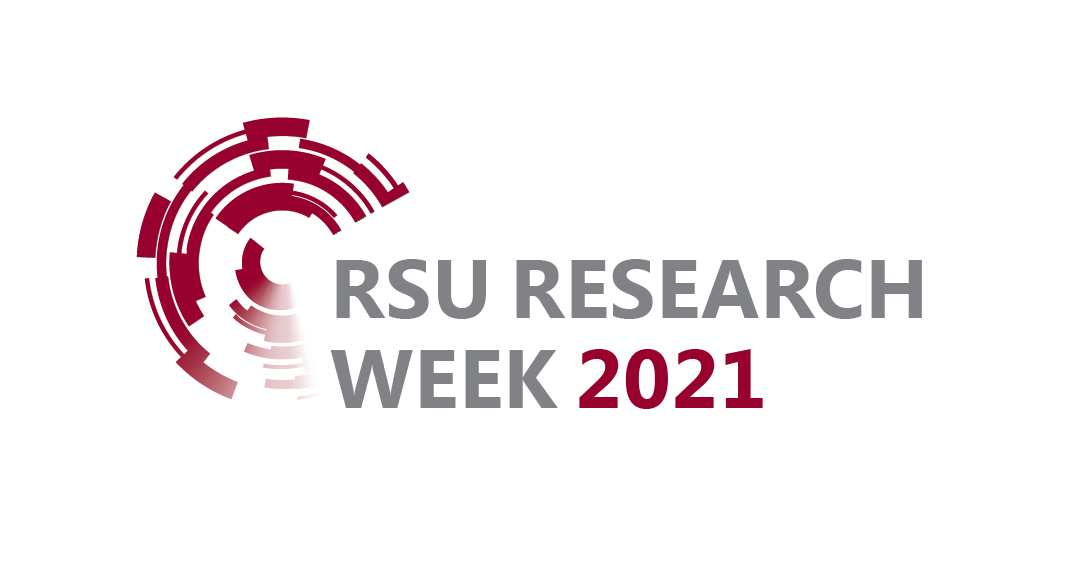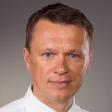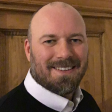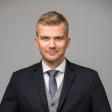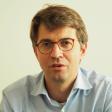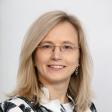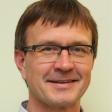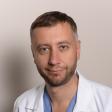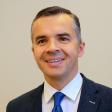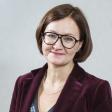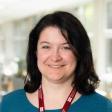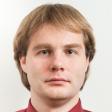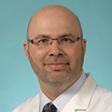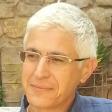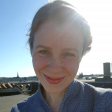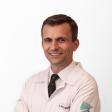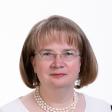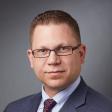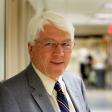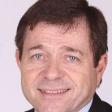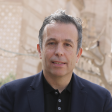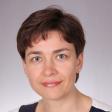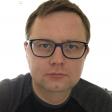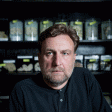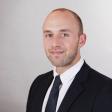Knowledge for Use in Practice
24-26 March 2021 Rīga Stradiņš University (Online Event)
Innovation in Medicine and Healthcare – from Research to Practice
25–26 March
- Insight into the Section
This section is open to all members with an interest in developing a vision for the future of medicine and healthcare.
We are open to collaborate with stakeholders, researchers across the Baltic sea region and beyond to advance technology and promote innovation in the field. This section is home to work groups focused in the areas of:
- Artificial Intelligence in healthcare
- Digital healthcare, telemedicine, virtual reality
- Information technologies, data science, Big Data, Internet of Medical Things
- Medical technologies: devices, materials, 3D printing, gadgets, biomedical engineering
- Personalized medicine
The event adheres to European Commission guidelines.
Factors that impact the digitalisation of health and healthcare:- the interoperability of systems and technologies;
- battling health systems market fragmentation;
- secure access to digital health solutions and health data;
- ensuring EU citizens’ trust in digital solutions;
- better quality health data.
- Digitisation supports:
- cross-border healthcare;
- health promotion and disease prevention;
- health systems reform;
- transition to new care models towards community-based and integrated care structures;
- better personalised medicine and more effective health and social care systems through the use of health data.
- Agenda 25/03 Connected health – the future of healthcare
Room: Great Hall 10:00–10:05 Opening of the event by Kristaps Krafte Session I: Connected health – the future of healthcare The goal of the first session is to emphasise the benefits of digitally connected healthcare and to offer practical steps for improvement. 10:05–10:15 Opening remark Prof. Dr. habil. med. Aigars Pētersons, RSU Rector 10:15–10:25 Patient perspective. Challenges met by people with chronic conditions Baiba Ziemele, Chairwoman of the Board at Latvian Alliance of Rare Diseases, Latvia 10:25–10:40 Connected Health Asst. Prof. Dr. med. Dins Šmits, RSU, Latvia “Connected Health encompasses terms such as wireless, digital, electronic, mobile, and tele-health and refers to a conceptual model for health management where devices, services or interventions are designed around the patient's needs, and health related data is shared, in such a way that the patient can receive care in the most proactive and efficient manner possible. All stakeholders in the process are ‘connected' by means of timely sharing and presentation of accurate and pertinent information regarding patient status through smarter use of data, devices, communication platforms and people.” 10:40–10:45 Q & A 10:45–11:00 Drive digital transformation through the Nationwide Electronic Health Record in Austria Dr. med. Franz Leisch, managing director of ELGA GmbH, Austria 11:00–11:05 Q & A 11:05–11:15 Public’s participation in research: Data-based decision making in disease prevention and early diagnostics Emīls Sundjukovs, Computer Scientist dedicated to Healthcare and Education, Latvia 11:15–11:17 Q & A 11:17–11:27 Working connected health solution already improving patients lives Vigo Health. Next steps in collaboration with research and healthcare institutions Dr. med. Jānis Šlēziņš, Vigo Health, Latvia 11:27–11:30 Q & A. Closing of the session 12:00 Session II: Panel discussion
Digital Health for Latvia: Challenges, Opportunities for Healthcare, Science and SocietyModerator: Toms Baumanis, Vice-Rector for Administration and Development, RSU 12:00–13:15 - Kaspars Bērziņš, Advisor to the Minister for Health
- Dr Valts Ābols, CEO, Children's Clinical University hospital
- Dr. med. Franz Leisch, managing director of ELGA GmbH, Austria
- Kārlis Albergs, NHS Quality Team, UK
13:15–13:25 Q & A 13:25–13:30 Recap of the Session II: action plan, list of further steps and closing statements 14:30 Session III: Needs-based Innovation – Knowledge-Intensive Solutions Experts:
Professor Jeroen Bergmann BSc MSc PhD, Associate Professor of Engineering Science, Director Oxford Healthtech Labs, Official Fellow at Reuben College, Senior Research Fellow in Engineering & Entrepreneurship
- Dr. sc. ing. Uldis Doniņš, RSU
- Asst. Prof. Guna Bērziņa, Rehabilitation Research Laboratory, RSU
- Assoc. Prof. Dr. sc. ing. Egons Lavendelis (RTU)
- Assoc. Prof. Katrina Boločko (RTU)
- Emīls Sundjukovs, Computer Scientist dedicated to Healthcare and Education
Innovation pilot & research project presentations 14:35–14:50 - Non-contact skin cancer and rare disease diagnostics
- Early non-contact bacteria activity evaluation
- Mobile health screening systems
- Knee joints automatic diagnostics
Dmitrijs Bļizņuks, Faculty of Computer Science and Information Technology, Institute of Smart Computer Technologies, Latvia 14:50–14:55 Q & A 14:55–15:10 UPOlife – Remote Heart Health Monitoring Solution Normunds Daudišs, Latvia 15:10–15:15 Q & A 15:15–15:30 Future Technologies - Wearable Electronics for Lung Monitoring & ePaper Signage for Hospitals Sander Suursalu, Estonia 15:30–15:35 Q & A Innovation pilot & research project presentations (5 min. presentation, 2 min. Q/A) 15:40–15:50 #869 Quality control of handwashing using neural networks Mārtiņš Ļuļļa, RSU, Medical Education Technology Centre 15:50–16:00 #666 Evaluation of Virtual Reality in Trauma Training: Randomised Controlled Trial Marta Laņģe, RSU, Medical Education Technology Centre 16:00–16:10 #493 Stealth Nanoparticles for Tumour-specific Delivery Dr Antons Sizovs, Baltic Biomaterials Centre of Excellence 16:10–16:20 #282 Assessment Of Innovative Biomarkers In Early Period After Kidney Transplantation Dr Katarīna Klaucāne, RSU Department of Internal Medicine, Rīga East Clinical University Hospital 16:20–16:30 #206 Detection and tracking of epilepsy seizures using machine learning and quantum dots biosensor Klevinda Fili, University of Chemistry and Technology, Prague 16:30–16:40 #1034 Artificial neural network use in optimising optical non-invasive skin cancer image segmentation and diagnostic Evija Cibuļska, Rīga Technical university 16:50 Poster presentation viewing / Comments / Q&A #624 H2S signalling modulation in human pulmonary arteries with Low-Frequency (20 kHz) ultrasound Agilė Tunaitytė, Laboratory of preclinical drug investigation, Institute of Cardiology, Lithuanian University of Health Sciences #622 Human induced pluripotent stem cell derived astrocyte based models in neuropsychiatric disorders Augusta Volkevičiūtė, Laboratory of preclinical drug investigation, Institute of Cardiology, Lithuanian University of Health Sciences #404 Computer user emotion detection methods in human computer interaction Sabīne Grīnberga, Department of Occupational and Environmental Medicine, Faculty of Medicine, RSU #447 Stroke patient experience using digital therapy “Vigo” for stroke patient recovery Klinta Epalte, Department of Public Health and Epidemiology, Faculty of Public Health and Welfare, RSU #267 Creation of digital bones collection with anatomically correct and optimised 3D models Edgars Čudars, Department of Morphology, Institute of Anatomy and Anthropology, RSU #478 3D printed additive ergonomic intravenous extremity support catheter stabilization protection products Ludmila Romanovska, Rīga Technical University - Agenda 26/03: Collaboration and Modernisation of Health Education / Competences
Focus on solutions and collaborations that can be achieved by modernising educational programs. The aim is to promote cooperation between entrepreneurs, scientists and health institutions to digitalise health and healthcare.
Room: Great Hall Session I 10:30–10:35 Opening remarks 10:35–10:45 Building advanced digital and research skills at Rīga Stradiņš University Agrita Kiopa, Vice-rector for Science, RSU 10:45–11:00 Academic perspectives of e-health and the 10+ years of experience of running international e-health and innovation master’s program (Health Care Technology) at Tallinn University of Technology Prof. Peeter Ross, Estonia 11:00–11:05 Q & A 11:05–11:20 Examination of different aspects applying AI algorithms for breast imaging in clinical practice Fredrik Strand, MSc MD PhD, Karolinska Institute, Sweden | Video 11:20–11:25 Q & A 11:25–11:40 Artificial intelligence in medical imaging: threat or opportunity? Assoc. prof. Maija Radziņa, Radiology Research Laboratory, RSU; Pauls Stradiņš Clinical University Hospital; Diagnostic Radiology Institute, RSU 11:40–12:00 Q & A. Closing the first half of the day 12:30 Session II: Shaping the Future of Preventive Diagnostics 12:30–14:00 Panel discussion: Big Data Analytics for Preventive Diagnostics
The use of big data, together with sensory devices, opens up possibilities for preventive diagnosis
- Jānis Paiders, Deputy Director for Research, Ministry of Education and Science
- Rolands Strazdiņš, Ministry of Regional Development and Environmental Protection, IT Policy
- Sergio Uribe, Visiting Associate Professor at RSU, DDS (Oral Surgeon), MSc in Maxillofacial Radiology, PhD in Medical Sciences
- Ieva Šlēziņa, Director, Medical Education Technology Centre, RSU
- John Martin Tully, Co–founder, CEO MikroTik
- Liene Ņikitina-Zaķe, Director, Research Department, RSU
Moderator: Kristaps Krafte Session III: IT Health – Today & Tomorrow (15:00–16:30) Moderator: Kristaps Zaļais, RSU B-Space Business Incubator, mentor Three speakers from the industry will discuss their experience and insights into digital transformation and digital solutions that shape modern healthcare and future development opportunities. Guests
- Kārlis Ketners, SmartView
SmartView is a cloud-based, feature-rich, online image viewing and modelling platform that allows radiologists to analyse patient examinations in a more convenient, remote way. This technology not only provides doctors with a workstation on their personal computers, but also expands it with artificial intelligence functionality. - Krists Avots is leading digital transformation at Tet, a technology & entertainment company with fixed telco roots. Previously, he led the new-bets business division at Tet, working on emerging technologies like AI & Big data, IoT and others.He is also a Board member at Overkill Ventures - an early-stage VC fund focusing on B2B startups and Supervisory council member at LMT. He holds Bsc in Economics & Business Management from SSE Riga and MA in Digital Management from HyperIsland and Teeside University.
Digital transformation at Tet incorporates:- Migrating all business lines to the new cloud/ hybrid cloud IT stack
- Complete business process revamp & optimization to align with“out-of-the-box” IT solutions
- Optimizing product& offering portfolio
- Agile as the modus-operandi: a new way of working, new values& culture expectations
- Auseklis Sarkans, Dāvis Auškāps, DoctoWell
DoctoWell's mission is to enable every clinic and doctor to be completely digital and benefit from the digitalisation of the healthcare industry. Our solutions include fast patient bookings with full digital health records, modern telemedicine and communication solutions as well as effective clinic and staff management and statistics. We are a team of 10 healthtech innovators and disruptors with a common goal to enhance the global healthcare sector one clinic at a time.
- Committees
Scientific Committee
- Prof. Aivars Lejnieks, Head of Department of Internal Diseases, RSU, Latvia
- Dr. rer. nat. Baiba Vilne, Head of Bioinformatics Group, Research Department, RSU, Latvia
- Sergio Uribe, DDS, OMFR, PhD, Leading Researcher at the Bioinformatics Research Unit, RSU, Latvia
- Assoc. Prof. Katrina Boločko, Vice Dean for Research, Faculty of Computer Science and Information Technology, Rīga Technical University, Latvia
- Assoc. Prof. Dr.sc.ing. Egons Lavendelis, Institute of Applied Computer Systems, Faculty of Computer Science and Information Technology, Rīga Technical University, Latvia
- Asst. Prof. Andris Skride, Department of Internal Diseases, RSU, Latvia
- Dr. med. Ainārs Stepens, Leading Researcher, Military Medicine Research and Study Centre, RSU, Latvia
- Dr. sc. ing. Uldis Doniņš, Head of Information Systems Division, RSU, Latvia
- Assoc. prof. Maija Radziņa, Radiology Research Laboratory, Rīga Stradiņš University, Pauls Stradiņš Clinical University Hospital
- Emīls Sjundjukovs, PhD Candidate, Computer Science, University of Latvia, Latvia
- Dr. Valdis Ģībietis, Co-Chair or RW2021 Scientific Committee, Latvia
- Fredrik Strand, MSc MD PhD, PI MammoAI ScreenTrust, Sweden
Organising Committee
- Prof. Aivars Lejnieks, Head of Department of Internal Diseases, RSU
- Dr. rer. nat. Baiba Vilne, Head of Bioinformatics Group, Research Department, RSU
- Sergio Uribe, DDS, OMFR, PhD, Leading Researcher at the Bioinformatics Research Unit, RSU
- Assoc. Prof. Katrina Boločko, Vice Dean for Research, Faculty of Computer Science and Information Technology, Rīga Technical University
- Assoc. Prof. Dr.sc.ing. Egons Lavendelis, Institute of Applied Computer Systems, Faculty of Computer Science and Information Technology, Rīga Technical University
- Asst. Prof. Andris Skride, Department of Internal Diseases, RSU
- Dr. med. Ainārs Stepens, Leading Researcher, Military Medicine Research and Study Centre, RSU
- Dr. sc. ing. Uldis Doniņš, Head of Information Systems Division, RSU
- Assoc. prof. Maija Radziņa, Radiology Research Laboratory, Rīga Stradiņš University, Pauls Stradiņš Clinical University Hospital
- Emīls Sjundjukovs, PhD Candidate, Computer Science, University of Latvia
- Dr. Valdis Ģībietis, Co-Chair or RW2021 Scientific Committee
- Valts Ābols, MD, CEO at Children's Clinical University Hospital in Rīga; Lecturer at RSU
- Justīne Vīķe, Manager at Technology Transfer Office, RSU
- Keynote Speakers
- Deep Dive articles
Metabolism and Cardiovascular Diseases
The heart needs energy!
24–26 March
- Insight into the Section
Mitochondria have a central role in the energy metabolism and ensures normal functioning of human body systems. Mitochondrial metabolism of fatty acids, glucose and other energy substrates sustains physiological conditions and is affected by detrimental stimuli such as substrate overload, ischemia, hormonal regulation, as well as genetic disturbances. Healthy diet and lifestyle ensures mitochondrial fitness and prevents diabetes and obesity, and in this way forms the background for cardiovascular health. In recent years, new evidence has been collected about the pivotal role of microbiota in the interaction between diet and cardiometabolic health homeostasis.
Cardiovascular diseases comprise additional pathogenetic mechanisms on the background of diabetes and other endocrinological conditions. Genetics of atrial fibrillation, arrhythmia, and reperfusion injury are of special interest because of clinical relevance. Exciting historical developments in the field of cardiac stimulation have led to considerable progress and saved millions of lives worldwide.
This section will highlight the achievements of RSU researchers and developments in collaboration with national and international colleagues. We will explore how metabolic changes on the molecular level trigger intrinsic protective mechanisms and how we can use this knowledge to prevent and treat cardiometabolic disease and diabetes complications.
- Agenda 24/03: oral & poster presentations
Room: Omega Session I Moderators: Prof. Aivars Lejnieks, Prof. Maija Dambrova 12:00–12:30 #652 Long-chain acylcarnitines: from mitochondrial metabolism to clinical applications Edgars Liepiņš, Maija Dambrova, Latvia 12:30–12:50 #539 Targeting mitochondrial bioenergetics as a therapeutic strategy for cardiopulmonary complications related to COVID-19 Reinis Vilšķērsts, Dana Kigitoviča, Stanislava Korzh, Melita Vidējā, Kārlis Vilks, Marina Makrecka-Kūka, Edgars Liepiņš, Andris Skride, Maija Dambrova, Latvia 12:50–13:10 #929 Precipitating Risk Factors, Clinical Presentation, and Outcome of Diabetic Ketoacidosis Ilze Konrāde, Sabīne Upmale-Engela, Justīne Brūvere-Kaupe, Inga Orleāne, Latvia 13:10–13:20 #686 Metformin decreases the plasma concentration of pro-atherogenic metabolite trimethylamine N-oxide in an experimental model of type 2 diabetes Melita Vidējā, Jānis Kūka, Marina Makrecka-Kūka, Jānis Liepiņš, Solveiga Grīnberga, Eduards Sevostjanovs, Kārlis Vilks, Edgars Liepiņš, Maija Dambrova, Latvia 13:20–13:30 Q & A session Break and poster viewing Session II Moderators: Prof. Maija Dambrova, Assoc.Prof. Ilze Konrāde 14:00–14:20 #1077 The human gut microbiome as a prediction tool for personalized T2D therapy Ilze Elbere, Ivars Silamiķelis, Ilze Izabella Dindune, Monta Ustinova, Laila Silamiķele, Ilze Konrāde, Valdis Pīrāgs, Jānis Kloviņš, Latvia 14:20–14:40 #809 The pathogenic role of Th17 cell pathway in autoimmune thyroid diseases Tatjana Zaķe, Ieva Kalere, Sabīne Upmale-Engela, Gita Gersone, Andrejs Šķesters, Valērija Groma, Ilze Konrāde, Latvia 14:40–14:50 #667 Potential Factors for Predicting Thyroid Malignancy in Cases of BSRTC III and IV Nodules Pāvils Plūme, Artūrs Ozoliņš, Zenons Narbuts, Rita Ničiporuka, Jānis Gardovskis, Latvia 14:50–15:00 #544 Landscape of circulating miRNAs in plasma from bilateral inferior petrosal sinus sampling of corticotroph pituitary neuroendocrine tumor Helvijs Niedra, Raitis Pečulis, Ilze Konrāde, Inga Balcere, Mihails Romanovs, Līva Šteina, Janis Stuķēns, Jeļizaveta Sokolovska, Jānis Kloviņš, Vita Rovīte, Latvia 15:00–15:10 #679 Adrenal surgery: single center 10+10 years experience Rita Ničiporuka, Artūrs Ozoliņš, Zenons Narbuts, Jānis Gardovskis, Latvia 15:10–15:30 Q & A session - Agenda 25/03: oral presentations
Room: Omega Session I Moderators: Asst. Prof. Ainārs Rudzītis, Prof. Oskars Kalējs 10:00–10:15 #1004 Ten-year experience of percutaneous transcatheter left atrial appendage occlusion (LAAO), procedural success and safety. Data from Latvian Centre of Cardiology (LCC) during 2010–2020 Santa Strazdiņa, Ainārs Rudzītis, Irina Cgojeva-Sproģe, Aļona Grāve, Andrejs Ērglis, Latvia 10:15-10:30 #233 Right ventricular myocardial infarction: it's incidence, clinical, laboratory, ECG and ECHO characteristics Irena Kurcalte, Sini-Tuulia Kilpeläinen, Artis Kalnins, Oskars Kalejs, Aivars Lejnieks 10:30–10:45 #826 Performance of the American Heart Association 14 point evaluation versus electrocardiography for the cardiovascular screening of university's volleyball teams players in Latvia Toms Jānis-Eglītis, Kalvis Kaļva, Sofija Ļebedeva, Anna Zuša, Baiba Norīte-Lapsiņa, Andris Vāvere, Jānis Žīdens, Oskars Kalējs, Latvia 10:45–11:00 #744 Patient adherence to antihypertensive medications during arterial hypertension therapy Dmitrijs Kustovs, Inga Urtāne, Kārlis Trušinskis, Latvia 11:00–11:15 #1120 The effectiveness of out-of-hospital resuscitation and the factors influencing it Anita Ābula, Aija Mača, Oskars Kalējs, Latvia 11:15–11:30 #1122 Changes in heart rate, blood pressure and O2 content of masters basketball player during training and competition Mairita Bumbure, Andris Vāvere, Andris Rudzītis, Oskars Kalējs, Latvia Session II Moderators: Asst. Prof. Andris Skride, Prof. Oskars Kalējs 12:00–12:15 #383 Hemodynamic and demographic characteristics of potential patients to undergo Balloon Pulmonary Angioplasty at Pauls Stradiņš Clinical University Hospital Verners Roberts Kalējs, Ainārs Rudzītis, Aivars Lejnieks, Matīss Šablinskis, Kristaps Šablinskis, Dana Kigitoviča, Ričards Kauliņš, Andris Skride, Barbara Vītola, Latvia 12:15–12:30 #1118 Cardiac damage in patients with pulmonary and lymph nodes sarcoidosis Ignė Strazdienė, Gintarė Martinkutė, Eglė Ereminienė, Lithuania 12:30–12:45 #830 One clinical center experience of outcome in patients with acute pulmonary embolism in 2018 Viktorija Pavlovska, Zane Liepiņa, Aldis Strēlnieks, Latvia 12:45–13:00 #768 Meldonium improves functioning of the right ventricle and mitochondrial bioenergetics in experimental model of pulmonary hypertension Dana Kigitoviča, Stanislava Korzh, Melita Vidējā, Kārlis Vilks, Marina Makrecka-Kūka, Edgars Liepiņš, Andris Skride, Maija Dambrova, Reinis Vilšķērsts, Latvia 13:00–13:15 #868 Inotropic Function of Myocardium In Patients With Persistent Form Of Atrial Fibrillation Receiving Antiarrhythmic drugs Class Ic Emma Sokolova, Aldis Strēlnieks, Baiba Kokina, Ainārs Rudzītis, Aivars Lejnieks, Oskars Kalējs, Latvia 13:15–13:30 #683 Significance of genetic testing in personalized approach of dilated cardiomyopathy. A case report Irina Rudaka, Gita Tauriņa, Viktorija Skuja, Linda Gailīte, Latvia 13:30–13:45 #605 Satisfactory outcome of the complicated STABILISE technique for type B aortic dissection – a one year follow up. Artūrs Ligers, Aina Kratovska, Veronika Zaiceva, Vitālijs Zvirgzdiņš, Patrīcija Ivanova 13:45–14:00 Q&A Session III Moderators: Asst. Prof. Kristīne Jubele, Prof. Aras Puodžiukynas, Prof. Oskars Kalējs 14:30–14:45 #983 The most serious complication of cardiac implantable electronic devices: two-decade experience
Nikolajs Nesterovics, Georgijs Nesterovics, Liga Vidusa, Maris Blumbergs, Janis Ansabergs, Oskars Kalējs 14:45-15:00 #320 Incidence Of Blood Culture Negative Infective Endocarditis In Patients Undergoing Cardiac Surgery Kristiāns Meidrops, Arina Žuravļova, Janis Davis Osipovs, Martins Kalejs, Valērija Groma, Eva Petrosina, Aigars Reinis, Eva Strike, Pēteris Stradiņš 15:00–15:15 #1059 Indirect antiarrhythmic effects of renin-angiotensin-aldosterone system inhibition for arrhythmia recurrence prevention after electrical cardioversion for persistent atrial fibrillation Aldis Strēlnieks, Baiba Kokina, Kristīne Jubele, Irina Pupkeviča, Irina Rudaka, Ginta Kamzola, Oskars Kalējs, Aivars Lejnieks, Lithuania 15:15–15:30 #681 Morphology of electrocardiogram P wave in correlation with pulmonary vein orientation in the left atrium in computed tomography Ligita Zvaigzne, Viktorija Verhovceva, Ketija Apsīte, Anna Labuce, Kristīne Jubele, Oskars Kalējs, Latvia 15:30–15:45 #803 AFibDI – Atrial Fibrillation Diurnal Index. The index for risk assessment derived from twenty-four hours Holter monitoring Irena Kurcalte, Oskars Kalējs, Aivars Lejnieks, Latvia 15:45–16:00 Q & A - Agenda 26/03: oral & poster presentations
The conference is held under the auspices of the Latvian Society of Hypertension and Atherosclerosis
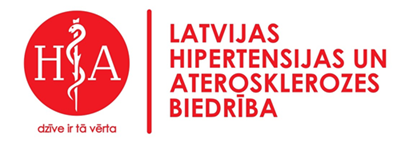
Cardiovascular disease. From Genes to Management
Room: Omega Session I Moderators: Assoc. Prof. Kārlis Trušinskis, Prof. Pēteris Stradiņš 10:30–11:00 Clonal hematopoiesis of indeterminate potential and its cardiovascular consequences Linda Gailīte, Latvia 11:00–11:30 Virtual coronary intervention in multifocal coronary artery disease Deniss Vasiļjevs, Latvia 11:30–12:00 Global longitudinal and segmental strain in patients with CAD Artem Kalinin, Latvia Break and poster viewing Session II 13:00–13:30 Coronary artery bypass grafting in younger patient population vs elderly. From scientific to practical considerations Pēteris Stradiņš, Latvia 13:30–14:00 Interplay between aortic valve pathology and dilated ascending aorta. Is it a chicken and egg situation? Ivars Brečs, Latvia 14:00–14:30 Infective endocarditis: should we revise Duke criteria? Kristiāns Meidrops, Latvia 14:30–15:00 Impact of acute coronary syndrome misdiagnosis on postoperative bleeding in patients with type A aortic dissection Gvido Jānis Bergs, Latvia - Keynote Speaker
- Committees
International Scientific Committee
- Assoc. Prof. Ilze Konrāde, Faculty of Medicine, Department of Internal Diseases, RSU, Latvia
- Prof. Maija Dambrova, Department of Pharmaceutical Chemistry, RSU, Latvia
- Prof. Oskars Kalējs, Department of Internal Diseases, RSU, Latvia
- Assoc. Prof. Pēteris Stradiņš, Department of Surgery, RSU, Latvia
- Assoc. Prof. Kārlis Trušinskis, Department of Internal Diseases, RSU, Latvia
Organising Committee
- Assoc. Prof. Ilze Konrāde, Faculty of Medicine, Department of Internal Diseases, RSU
- Prof. Maija Dambrova, Department of Pharmaceutical Chemistry, RSU
- Prof. Oskars Kalējs, Department of Internal Diseases, RSU
- Assoc. Prof. Pēteris Stradiņš, Department of Surgery, RSU
- Assoc. Prof. Kārlis Trušinskis, Department of Internal Diseases, RSU
Women's and Children's Health
Emerging issues in women's, maternity, newborn and children's health
25 March
- Insight into the Section
The health of women and children is vital to creating a healthy world. Over the last decades, life expectancy has increased and children's and maternal mortality rates have decreased all over the world, and in Europe particularly. However, in an era of globalisation, technological development, and climate change, researchers and health care providers face new challenges in women’s, maternal, newborn, and children's health. Let’s discuss these emerging topics together!
- Children and illness
- Where do maternal and infants' health needs intersect?
- Towards a better understanding of women's health
- Agenda: oral presentations
Room: Lambda Session I: Children's Health Moderators: Prof. Dace Gardovska, Assoc. Prof. Jana Pavāre 10:00–10:30 Severe pediatric inflammatory multisystem syndrome temporally associated with SARS-CoV-2 (PIMS-TS) Corsino Rey Galán, Spain 10:30–10:40 #930 Blood lactate level prediction of mortality in critically ill children in Latvia Toms Dombrovskis, Ivars Vegeris, Reinis Balmaks, Latvia 10:40–10:50 #365 Predictive model for serious bacterial infections in children with fever presenting to emergency department Urzula Nora Urbāne, Eva Petrošina, Dace Zavadska, Jana Pavāre 10:50–11:00 #380 Comparison of clinical features of COVID-19 vs febrile non-SARS-CoV-2 infections in hospitalized children Zanda Pučuka, Ieva Roģe, Liene Smane, Iveta Račko, Lizete Kļaviņa, Anna Beate Apsīte, Inese Stars, Anda Ķīvīte-Urtāne, Jana Pavāre, Latvia 11:00–11:10 #497 Indirect impact of COVID-19 pandemics on health-related quality of life and specialized health care in children with chronic diseases in Children’s Clinical University Hospital of Latvia Anija Meiere, Iveta Dzīvīte-Krišāne, Ineta Grantiņa, Ieva Puķīte, Elīna Aleksejeva, Ilze Grope, Anda Ķīvīte-Urtāne, Dace Gardovska, Latvia 11:10–11:20 #458 Immediate antibiotic prescribing habits for acutely ill children in primary care Zane Līkopa, Sandis Kovaļovs, Loreta Miļuna, Emīlija Reimane, Lauma Vasiļevska, Jana Pavāre, Latvia 11:20-11:30 Discussion Session II: Women's and Children's Health Moderators: Prof. Ilze Grope, Prof. Dace Rezeberga 12:00–12:30 COVID19: An Experience From a Large Midwestern Pediatric Hospital Matthew I. Goldsmith, USA 12:30–12:40 #698 Chromosomal Aberration Diagnostic Yield Diagnosed with Chromosomal Microarray Analysis in Latvia in 2019 and 2020 Rasa Kiršteina, Daiga Mūrmane, Madara Mašinska, Ieva Mičule, Ieva Grīnfelde, Gita Tauriņa, Latvia 12:40–12:50 #751 Ovarian and fallopian tube pathologies in children and adolescents Ivanda Franckeviča, Marta Riekstiņa, Ieva Baurovska, Latvia 12:50–13:00 #673 Knowledge and beliefs about human papillomavirus and vaccination against it among adolescents and parents Anna Linda Upmale, Anete Vanaga, Jana Žodžika, Latvia 13:00–13:10 #619 Lithuanian students’ knowledge about HPV and HPV vaccine Jonas Ulevičius, Kristina Jarienė, Petrušaitė, Aurelija Siratavičienė, Lithuania 13:10–13:20 #538 Provision of pregnancy care during the COVID-19 restrictions Dace Rezeberga, Elizabete Pumpure, Darja Mihailova, Gunta Lazdāne, Ināra Kantāne, Anda Ķīvīte-Urtāne, Latvia 13:20-13:30 Discussion Room: Lambda Parallel Session I: Children's Health Moderators: Assoc. Prof. Zane Ābola, Assoc. Prof. Iveta Dzīvīte-Krišāne 14:30–14:40 #736 Determining Acute Complicated And Uncomplicated Appendicitis Using Serum And Urine Biomarkers Leucine Rich Alpha-2 Glycoprotein 1, Neutrophil Gelatinase-Associatd Lipocal And Interleukin-6 Mohits Kakars, Renārs Broks, Lāsma Asare, Mathilde Delmore, Marisa M Berezovska, Astra Zviedre, Aigars Reinis, Juta Kroiča, Arnis Eņģelis, Amulya K Saxena, Aigars Pētersons, Latvia 14:40–14:50 #820 Antibacterial therapy for non-complicated appendicitis in children: problem of choice Timurs Zurmutaī, Arnis Eņģelis, Aigars Pētersons, Astra Zviedre, Jurijs Bormotovs, Latvia 14:50–15:00 #791 Low Carbohydrate Diet (GAPS) for Children with Attention-Deficit / Hyperactivity Disorder (ADHD) Silvija Ābele, Edmunds Vanags, Dace Reihmane, Latvia 15:00–15:10 #721 Pediatric quality of life after critical illness Anna Klēšmite, Darija Smirnova, Ivars Veģeris, Latvia 15:10–15:20 #491 Consumption of nonnutritive sweeteners and sweetened beverages in children's population Zane Roze, Eva Pērle, Iveta Dzīvīte-Krišāne, Ilze Grope, Latvia 15:20–15:30 #477 Neonatal outcomes and mortality rate of preterm infants (born at ≤30 +6 weeks) admitted to Kaunas Center of Perinatology in 2019 Mantilė Juotkutė, Atėnė Simanauskaitė, Rasa Tamelienė, Lithuania 15:30–15:40 #885 Review of patients with necrotising enterocolitis (NEC) treated in Children’s Clinical University Hospital (CCUH) Riga from 2015 to 2020 Jānis Karlsons, Sandra Ozoliņa, Hilda Snipe, Zane Ābola, Latvia 15:40-16:00 Discussion Room: Tau Parallel Session II: Woman's Health Moderators: Prof. Gunta Lazdāne, Prof. Rūta Nadišauskienė 14:30–14:40 #462 Lithuania’s experience in reducing Caesarean section rate Rūta Nadišauskienė, Justina Kačerauskienė, Lithuania 14:40–14:50 #1033 Experience of implementation of Robson classification at Riga Maternity Hospital Laura Rācene, Dace Rezeberga, Latvia 14:50–15:00 #823 Clinical characterization and collagenopathic phenotyping in preterm birth due to cervical insufficiency Ludmila Voložonoka, Anna Kornete, Zita Krūmiņa, Adele Rota, Linda Gailīte, Inga Kempa, Dace Rezeberga, Anna Miskova, Latvia 15:00–15:10 #132 First-time delivering women‘s fear of childbirth and it‘s relation to childbirth outcomes Mantilė Juotkutė, Akvilė Papievytė, Eglė Machtejevienė, Lithuania 15:10–15:20 #788 Use of effective contraception among sexually active HIV positive women in Latvia Violeta Bule, Ieva Pitkēviča, Gunta Lazdāne, Latvia 15:20–15:30 #537 Pros and Cons of the presence of a partner in childbirth during COVID-19 restrictions Elizabete Pumpure, Dace Rezeberga, Darja Mihailova, Gunta Lazdāne, Ināra Kantāne, Anda Ķīvīte-Urtāne, Latvia 15:30–15:40 #1023 The impact of gender-based violence on female sexual function Anna Pentjugova, Anna Miskova, Latvia - Committees
International Scientific Committee
- Prof. Dr. habil. med. Dace Gardovska, Head of the Department of Paediatrics, RSU, Latvia
- Assoc. Prof. Jana Pavāre, Dean, Faculty of Medicine, Department of Paediatrics, RSU, Latvia
- Corsino Rey Galán, PhD, MD, Full Professor of Paediatrics at University of Oviedo, Spain
- Matthew I. Goldsmith, M.D, Associate Professor of Pediatrics, Critical Care Medicine, Washington University in St. Louis, USA
- Prof. Dace Rezeberga, Head of the Department of Obstetrics and Gynaecology, RSU, Latvia
- Prof. PhD Gunta Lazdāne, Department of Obstetrics and Gynaecology; Director at Institute of Public Health, RSU, Latvia
- Prof. Ilze Grope, Dean, Faculty of Residency, RSU; Department of Paediatrics, RSU, Latvia
- Prof. Rūta Nadišauskiene, Lithuanian University of Health Sciences, Lithuania
- Prof. Helle Karro, University of Tartu, Estonia
Organising Committee
- Prof. Dr. habil. med. Dace Gardovska, Head of the Department of Paediatrics, RSU
- Prof. Dace Rezeberga, Head of the Department of Obstetrics and Gynaecology, RSU
- Prof. PhD Gunta Lazdāne, Department of Obstetrics and Gynaecology; Director at Institute of Public Health, RSU
- Keynote Speakers
Oncology and Haematology
25–26 March
- Insight into the Section
The following themes will be covered in the section:
- Epidemiology and molecular epidemiology of cancer;
- Clinical challenges in case of hereditary cancers;
- Influence of genetic modifiers on the penetrance of cancer-predisposing genes;
- Non-invasive markers for early diagnosis of cancer;
- Predicative and prognostic markers;
- Hypoxia related markers of cancer development.
- Agenda 25/03: oral presentations
Room: Zeta Session I Moderators: Prof. Jānis Gardovskis, Prof. Sandra Lejniece, Prof. Edvīns Miklaševičs 10:00–10:55 Development of cancer vaccine for HCC Luigi Buonaguro, Italy 11:00–11:15 #290 Expression pattern of MRPS18 family, UCKL1, XAP2 and PKN1 genes in sera and tumor tissue of breast cancer patients, depending on molecular subtype Larysa Kovalevska, Kateryna Vovkolup, Taras Zadvornyj, Nataliia Lukianova, Elena Kashuba, Ukraine 11:15–11:30 #661 BRCA1 loss of heterozygosity in cancer cells of hereditary breast cancer patients Nora Kriķe, Egija Berga-Švītiņa, Zanda Daneberga, Edvīns Miklaševičs, Latvia Session II Moderators: Prof. Sandra Lejniece, Prof. Gunta Purkalne 12:00–12:15 #412 Analysis of the chemokine receptor CCR1 mutations in patients with chronic lymphocytic leukemia Laura Zvejniece, Alla Rivkina, Viktorija Kurbatska, Svjatoslavs Kistkins, Jeļena Pavlova, Ainārs Leončiks, Sandra Lejniece, Irina Holodņuka, Latvia 12:15–12:30 #469 Prognostic markers of disease progression in untreated patients with chronic lymphocytic leukemia Alla Rivkina, Irina Holodņuka, Laura Zvejniece, Šimons Svirskis, Marina Soloveičika, Svetlana Kozireva, Jeļena Pavlova, Ainārs Leončiks, Sandra Lejniece, Latvia 12:30–12:45 #993 Implementation of the TP53 somatic variant detection for prognosis detection in case of chronic lymphocytic leukemia Linda Gailīte, Zane Dobele, Jekaterina Isakova, Kristiāna Imša, Larisa Zariņa, Ludmila Beļajeva, Kristīne Bernāte, Sandra Lejniece, Latvia 12:45–13:00 #151 Initial findings in retinoblastoma patients Sandra Ose, Latvia; Bernhard Steiner, Petra Ritter-Sovinz, Andreas Wedrich, Christoph Schwab, Austria 13:00–13:15 #648 Acute neutropenia induced by antibiotics: a systematic review of case reports Julian M. Holz, Alon V. Chevtchenko, Aleksandra Aitullina, Latvia 13:15–13:30 #1052 Expression and prognostic value of neuroendocrine peptides in neuroblastoma Udo Rolle, Germany Session III Moderators: Assoc. Prof. Zanda Daneberga, Assoc. Prof. Andris Gardovskis 14:30–14:45 #242 Changes of miRNA Expression Levels in Plasma as Biomarker for Response to Chemotherapy in Metastatic Colorectal Cancer Julius Garben, Miki Nakazawa-Miklaševiča, Elīna Sīviņa, Edvīns Miklaševičs, Jānis Gardovskis, Zanda Daneberga, Latvia 14:45–15:00 #614 Health care specialist knowledge and opinion on cutaneous metastases diagnostic methods Alise Emma Čakārne, Elga Sidhoma, Latvia 15:00–15:15 #950 Renal cell carcinoma affects RedOx homeostasis and selenium content Māris Jakuboskis, Latvia; Vinita Cauce, Baiba Steinbrekera, USA; Kārlis Pētersons, Igors Andžāns, Marina Jakubovska, Andrejs Šķesters, Vilnis Lietuvietis, Latvia 15:15–15:30 #678 Comparison of unexpected vs preoperatively diagnosed thyroid carcinomas Rita Ničiporuka, Artūrs Ozoliņš, Zenons Narbuts, Jānis Gardovskis, Latvia 15:30–15:45 #895 Skin cancers and occupational sun exposure: Pathogenetic mechanisms behind Luca Falzone, Saverio Candido, Massimo Libra, Italy 15:45–16:00 #413 Role of MRPS18 family proteins in the control on stemness and differentiation of cancerous cells of childhood tumors of nervous system Elena Kashuba, Larysa Kovalevska, Tatyana Malysheva, Sergej Kalman, Lyudmila Verbova, Ukraine - Agenda 26/03: oral presentations
Room: Zeta Session I Moderators: Prof. Sandra Lejniece, Assoc. Prof. Arvīds Irmejs 10:30–10:45 #329 Liver metastasis from retroperitoneal leiomyosarcoma 18 years after primary tumour resection: Report of a case Kristīne Pavloviča, Māra Tirāne, Raimo Stucka, Jānis Vilmanis, Māris Sperga, Artūrs Ozoliņš, Jānis Gardovskis, Latvia 10:45–11:00 #1117 Plastic surgery concept for reconstruction of complex nose defects after tumor excision. Case report Marta Taurīte, Kristaps Blūms, Vadims Ņefjodovs, Jānis Zariņš, Kalvis Pastars, Latvia 11:00–11:15 #824 A Case report of Agressive Adenocarcinoma of Cervix with Ovarian Metastasis Lāsma Tauriņa, Arta Spridzāne, Androniks Mitiļdžans, Latvia 11:15–11:30 #1065 The use of novel diagnostic and treatment modalities in the case of primary localized prostate cancer Reinis Riekstiņš, Vilnis Lietuvietis, Juris Jansons, Alberts Belovs, Latvia 11:30–11:45 #284 Cutaneous metastases in laryngeal cancer: dermoscopic findings Alise Emma Čakārne, Elga Sidhoma, Sigita Hasnere, Latvia Session II Moderators: Prof. Edvīns Miklaševičs, Dr. med. Linda Gailīte 13:00–13:15 #689 A case report of signet ring cell gastric carcinoma: multidisciplinary approach Justīne Brūvere-Kaupe, Pauls Bērziņš, Sabīne Pūce, Latvia 13:15–13:30 #867 Ewing’s sarcoma of orbit with partial central retinal vein thrombosis: Case Report Rita Urtāne, Jekaterina Zaharova, Marika Grūtupa, Latvia 13:30–13:45 #959 Large parathyroid carcinoma eight years after thyroid surgery Elīna Tauvēna, Maija Radziņa, Sergejs Pavlovičs, Madara Ratniece, Zenons Narbuts, Jurijs Nazarovs, Rita Ničiporuka, Artūrs Ozoliņš, Jānis Gardovskis, Latvia 13:45–14:00 #1103 A case report of unusual presentation of esophageal cancer Justīne Brūvere-Kaupe, Daniela Dana Bizika, Sabīne Pūce, Latvia - Committees
Scientific Committee
- Prof. Dr. habil. med. Jānis Gardovskis, Department of Surgery, Faculty of Medicine, RSU, Latvia
- Prof. Sandra Lejniece, Dean, Department of Doctoral Studies, Head of Study Programme, Department of Internal Diseases, RSU, Latvia
- Prof. Dr. biol. Edvīns Miklaševičs, Department of Biology and Microbiology, Director, Institute of Oncology, RSU, Latvia
- Asst. Prof. Alla Rivkina, Department of Internal Diseases, RSU, Latvia
- Edward Laane, MD, Ph.D, North Estonia Medical Centre, Estonia
Organising Committee
- Prof. Dr. habil. med. Jānis Gardovskis, Department of Surgery, Faculty of Medicine, RSU
- Prof. Sandra Lejniece, Dean, Department of Doctoral Studies, Head of Study Programme, Department of Internal Diseases, RSU
- Keynote Speaker
Infectious Diseases
24–26 March
How to live with microorganisms in today’s world
- Insight into the Section
The programme includes reports on viral, bacterial and parasite infections related to human health. More detailed SARS-CoV-2 and COVID-19, other topical viral infections, bacterial and parasitic infections and their significance in Latvia will be addressed, as well as the importance of vaccinating against infection-causing agents and the role of infectious agents in the development of non-communicable diseases. The latest findings on COVID-19, HIV, viral hepatitis, tick-borne encephalitis, gastrointestinal viral infections, influenza and other infections actual in Latvia will be discussed. The significance of bacterial infections in Latvia, like legionellosis, Lyme disease etc. and parasitic infections, like echinococcosis, toxoplasmosis and other actual parasitic infections will be pointed out.
One section will be devoted to the importance of vaccination including undesirable post-vaccination events. Also, the role and importance of viral infections in the development of non-communicable diseases, such as cancer, diseases of neural system and autoimmune diseases etc. will be viewed including burden of infection associated diseases on society and the economy, machine learning in research of infectious diseases etc.
Key speakers and presenters will be invited from Lithuania, Poland and other Latvian universities.
- Agenda 24/03: oral presentations
Room: Beta Session I: SARS-CoV-2 and COVID-19 Moderators: Prof. Ludmila Vīksna, Prof. Dace Gardovska 12:00–12:30 Confrontation with COVID-19: Lithuanian experiences, everyday challenges and perspectives Ligita Jančorienė, Lithuania 12:30–12:40 #714 Evaluation of possible SARS-CoV-2 fecal-oral transmission route in Latvian COVID-19 patients Maksims Čistjakovs, Lība Sokolovska, Samanta Strojeva, Modra Murovska, Latvia 12:40–12:50 #730 Cytokine storm and COVID-19 severity Zaiga Nora-Krūkle, Anda Vilmane, Monta Ustinova, Laura Ansone, Modra Murovska, Janis Kloviņš, Latvia 12:50–13:00 #405 Distribution of HLA Class II allelic variants in patients with COVID-19 in Latvia Laura Bajāre, Ieva Vanaga, Jeļena Eglīte, Vladislavs Jasinskis, Sergejs Koļesovs, Ilze Bērziņa, Baiba Rozentāle, Ludmila Vīksna, Latvia 13:00–13:10 #708 Abnormal liver function in patients hospitalized with COVID-19 in Latvia Ieva Vanaga, Oksana Koļesova, Sniedze Laivacuma, Baiba Mihailova, Seda Arutjuņana, Baiba Rozentāle, Ludmila Vīksna, Latvia 13:10–13:20 #805 Multiparametric Ultrasound Evaluation of Post-SARS-CoV-2 Liver Parenchymal Changes Maija Radziņa, Ardis Platkājis, Arta Mičena, Dāvis Sīmanis Putriņš, Ieva Vanaga, Oksana Koļesova, Ludmila Vīksna, Latvia 13:20–13:30 #473 COVID-19 clinical and epidemiological characteristics in children in Latvia: a descriptive retrospective cohort study Anna Beate Apsīte, Liene Smane, Zanda Pučuka, Ieva Roģe, Iveta Račko, Inese Stars, Jana Pavāre, Latvia Session II: Other topical viral infections Moderator: Prof. Ludmila Vīksna 14:00–14:10 #919 Novel mechanism of HIV-1 driven carcinogenicity affecting epithelial cells Maria Isaguliants (Issagouliantis), Juris Jansons, Džeina Mežale, Dace Skrastiņa, Ekaterina Bayurova, Darya Avdoshina, Alla Kondrashova, Latvia 14:10–14:20 #363 Predictive role of glutathione reductase and other RedOx markers in septic shock patients on CVVH treatment Georgijs Moisejevs, Eva Bormane, Dace Trumpika, Ināra Bušmane, Ritvars Ziedonis, Regīna Baufale, Jūlija Voicehovska, Anda Grigāne, Oļegs Šuba, Andrejs Šķesters, Alise Silova, Linda Gailīte, Ģirts Briģis, Latvia 14:20–14:30 #575 Specific protection status against diphtheria and measles in adults living in Latvia Aija Leidere-Reine, Indra Zeltiņa, Jeļena Eglīte, Elvīra Hagina, Anna Mironovska, Ilga Upeniece, Inta Bērziņa, Ingrīda Strika, Ludmila Vīksna, Latvia 14:30–14:40 #253 Whole genome sequencing-based prediction of recurrent tuberculosis etiology for patients involved in a local outbreak Darja Sadovska, Ilva Pole, Iveta Ozere, Anda Vīksna, Jānis Ķimsis, Viktorija Igumnova, Inga Norvaiša, Renāte Ranka, Latvia 14:40–14:50 #677 Detection and genotyping of human papillomavirus in hypopharyngeal carcinoma samples Andrejs Lifšics, Maksims Čistjakovs, Valērija Groma, Modra Murovska, Latvia 14:50–15:00 #701 Mapping the potential of pharmaco-metabolomics for personalized antituberculosis therapy Viktorija Igumnova, Agnija Kivrāne, Lauma Freimane, Ilva Pole, Anda Vīksna, Valentīna Čapligina, Eduards Sevostjanovs, Solveiga Grīnberga, Dace Bandere, Renāte Ranka, Latvia 15:00–15:10 #474 Patients survey as helpful tool for adjusting Hepatitis C Virus infection elimination strategy Iveta Jukšinska, Ieva Tolmane, Baiba Rozentāle, Inga Ažiņa, Velga Ķūse, Agita Jēruma, Diāna Kalniņa, Raimonds Sīmanis, Latvia 15:10–15:20 #27 Verocytotoxin-producing and pathogenic E.coli molecular diagnostic in Latvia from 2014-2019 Oksana Savicka, Gaļina Muzje, Reinis Zeltmatis, Solvita Selderiņa, Jeļena Galajeva, Jeļena Storoženko, Latvia 15:20–15:30 #976 Retrospective analysis of full-thickness penetrating keratoplasty in herpetic keratitis patients Ēriks Elksnis, Guna Laganovska, Anete Kursīte, Latvia - Agenda 25/03: oral presentations
Room: Beta Session I: Clinical microbiology Moderators: Prof. Juta Kroiča 10:00–10:12 #1045 Risk factor detection for biofilm formation in E. Coli Kārlis Rācenis, Aivars Pētersons, Zane Munkena, Dace Rezevska, Renārs Broks, Linda Gailīte, Juta Kroiča, Latvia 10:12–10:24 #747 Evaluation of microbiota in children with acute appendicitis Mohits Kakars, Juta Kroiča, Aigars Reinis, Renārs Broks, Lāsma Asare, Mathilde Delmore, Marisa M Berezovska, Astra Zviedre, Arnis Enģelis, Amulya K Saxena, Aigars Pētersons, Latvia 10:24–10:36 #312 Prevalence of Aeromonas spp. infection in pediatric patients hospitalized with gastroenteritis during the COVID-19 pandemic Irina Grāve, Aleksandra Rudzāte, Anda Nagle, Edvīns Miklaševičs, Dace Gardovska, Latvia 10:36–10:48 #459 The Associations Between Bacteria, Fungi and Biofilm Production in Patients with Recurrent Tonsillitis and Healthy Controls Renāta Klagiša, Juta Kroiča, Ligija Ķīse, Gunta Sumeraga, Lāsma Asare, Latvia 10:48–11:00 #910 Retrospective analysis of results of full-thickness corneal grafts after infectious keratitis treated in P. Stradiņš Clinical University Hospital between 2016 and 2020 Arturs Zemītis, Anete Kursīte, Guna Laganovska, Latvia 11:00–11:15 #878 Bacteriological isolation of Cutibacterium acne in clinical isolates from Acne vulgaris patients Terēze Pavloviča, Dagnija Bruzgule, Tatjana Averjanova, Ingus Skadiņš, Aleksejs Zavorins, Juta Kroiča, Latvia 11:15–11:30 #844 Management of biomaterial-associated infections: is it time for bacteriophages? Dace Rezevska, Kārlis Rācenis, Ingus Skadiņš, Anastasija Dovbenko, Juta Kroiča, Latvia Session II: Parasitic infections and their significance in Latvia Moderator: Prof. Angelika Krūmiņa 12:00–12:30 #1043 TOXOSOURCES-project: What are the relative contributions of the different sources of Toxoplasma gondii infection? Pikka Jokelainen, Denmark 12:30–12:40 #935 Echinococcosis: typical patient in Latvia Sniedze Laivacuma, Angelika Krūmiņa, Ludmila Vīksna, Latvia 12:40–12:50 #1010 The Zoonotic Parasite Dirofilaria repens Emerged in the Baltic Countries Estonia, Latvia, and Lithuania in 2008–2012 and Became Established and Endemic in a Decade Gunita Deksne, Pikka Jokelainen, Valentina Oborina, Brian Lassen, Ilze Akota, Otilija Kutanovaitė, Linas Zaleckas, Dina Cīrule, Artjoms Tupīts, Viktors Pimanovs, Andrius Talijunas, Angelika Krūmiņa, Latvia 12:50–13:05 #845 The hidden face of scabies Jānis Ķīsis, Alise Huskivadze, Angelika Krūmiņa, Latvia 13:05–13:15 #1032 Occurrence of important foodborne zoonotic pathogens in Latvia – Cryptosporidium spp. and Giardia duodenalis Maira Mateusa, Gunita Deksne, Angelika Krūmiņa, Latvia 12:50–13:05 #958 The first records of Spirometra erinaceieuropaei (Cestoda:Diphyllobothriidae) in Latvian wildlife – biological diversity or potential source for zoonosis? Guna Bagrade, Ivica Králová-Hromadová, Eva Bazsalovicsová, Alžbeta Radačovská, Marta Kołodziej-Sobocińska, Latvia Session III: Vaccination and new approaches in infectology Moderators: Assoc. Prof. Dace Zavadska, Šimons Svirskis 14:30–14:50 Vaccine efficacy and effectiveness and Covid-19 vaccines Dace Zavadska, Latvia 14:50–15:05 Influenza vaccination in HCW at university hospitals Dana Isarova, Latvia 15:05–15:15 #106 Influenza vaccination’s rate and proportion of affected children in the age group from 6 to 23 months in general practitioner’s practices Jeļena Bogdanova, Latvia 15:15–15:25 #519 Attitude towards influenza vaccine among the general population of Latvia during the covid-19 pandemic Denija Dzirne, Zanda Boginska, Gunārs Strods, Gunta Tīcmane, Latvia 15:25–15:35 #565 Tick-borne encephalitis vaccine failures – review of the literature and 12-year population based data Zane Freimane, Dace Zavadska, Latvia 15:35–15:50 #1134 Machine Learning: A Brief Description and Application in Infectious Disease Research Šimons Svirskis, Baiba Vilne, Latvia - Agenda 26/03: oral presentations
Room: Beta Session I: Non-communicable diseases induced by infectious agents Moderators: Assoc. Prof. Modra Murovska, Dr. med. Zaiga Nora-Krūkle 10:30–10:40 #840 Whether parvoviruses are significant players in meningitis/meningoencephalitis? Anda Vilmane, Anna Terentjeva, Normunds Sūna, Santa Rasa-Dzelzkalēja, Modra Murovska, Zaiga Nora-Krūkle, Latvia 10:40–10:55 #620 Activation of microglia in cortical lobes and possible associations with human herpesvirus 6 and 7 infection Sandra Skuja, Valērija Groma, Marika Garnizone, Šimons Svirskis, Modra Murovska, Latvia 10:55–11:10 #1075 European Network on Myalgic Encephalomyelitis/Chronic Fatigue Syndrome - EUROMENE Modra Murovska, Uldis Berķis, Angelika Krūmiņa, Andrejs Ivanovs, Asja Lunga, Diāna Arāja, Zaiga Nora-Krūkle, Santa Rasa-Dzelzkalēja, Šimons Svirskis, Latvia 11:10–11:20 #1087 Disease aggressiveness indices association with fatigue in rheumatoid arthritis patients Anda Kadiša, Zaiga Nora-Krūkle, Lība Sokolovska, Sabīne Grāvelsiņa, Katrīne Vecvagare, Šimons Svirskis, Aivars Lejnieks, Modra Murovska, Latvia 11:20–11:35 #559 Morphological and laboratory cytokine indices in osteoarthritis patients demonstrated in the presence of human herpesvirus 7 infection Valērija Groma, Mihails Tarasovs, Sandra Skuja, Sofija Semenistaja, Zaiga Nora-Krūkle, Šimons Svirskis, Modra Murovska, Latvia 11:35–11:50 #610 Possible involvement of human herpesvirus-6 U12 and U51 gene coded proteins in the development of autoimmunity – an immunological investigation Lība Sokolovska, Maksims Čistjakovs, Alīna Sultanova, Modra Murovska, Egils Cunskis, Latvia 11:50–12:00 #550 Prevalence of KIR2DL2/DS2 and KIR2DL3 and presence of B19V in patients with thyroid disorders Sabīne Grāvelsiņa, Elisabetta Caselli, Zaiga Nora-Krūkle, Šimons Svirskis, Anda Vilmane, Modra Murovska, Latvia Session II: Current topics in microbiology and virology – importance for society Moderators: Assoc. Prof. Simona Doniņa, Assoc. Prof. Uldis Berķis 13:00–13:15 #877 Inflammatory chemokine receptors in EBV infection Irina Holodņuka, Svetlana Kozireva, Laura Zvejniece, Ainars Leončiks, Zhanna Rudevica, Elena Kashuba, Latvia 13:15–13:30 #815 Clinical manifestation of HSV-1, HSV-2 or VHZ/HHV-3 in cervical cancer patients after treatment Simona Doniņa, Šimons Svirskis, Latvia 13:30–13:40 #833 Formation of SARS-CoV-2 specific antibodies in dynamics Samanta Strojeva, Maksims Čistjakovs, Lība Sokolovska, Zaiga Nora-Krūkle, Sabīne Grāvelsiņa, Modra Murovska, Latvia 13:40–13:50 #589 Identification of bacterial lung infections and pre-existing persistent/chronic viral infections in COVID-19 patients Anda Vilmane, Zaiga Nora-Krūkle, Sabīne Grāvelsiņa, Modra Murovska, Latvia 13:50–14:05 #690 The role of infections in oral health and dentistry Ingrīda Čēma, Jagriti Kakar, Latvia 14:05–14:20 #816 The burden of infection associated diseases on society and the economy Uldis Berķis, Diāna Arāja, Modra Murovska, Latvia 14:20–14:30 #1048 Shadow burden of undiagnosed chronic fatigue syndrome (CFS) on society Diāna Arāja, Uldis Berķis, Asja Lunga, Vita Rovīte, Modra Murovska, Latvia 14:30–14:40 #408 The effect of bacterial growth conditions on biofilm formation Anastasija Dovbenko, Ingus Skadiņš, Juta Kroiča, Edvīns Miklaševičs, Latvia 14:40–14:50 #996 Determination of antibacterial effect of CuO and ZnO containing sol-gel surface coatings Renārs Broks, Gundars Mežinskis, Mairis Iesalnieks, Alise Ozoliņa, Juta Kroiča, Aigars Reinis, Latvia 14:50–15:00 #649 Antibacterial effect of autologous fibrin matrices Ingus Skadiņš, Arita Dubņika, Karina Egle, Anastasija Dovbenko, Ilze Šalma, Lana Mičko, Latvia - Committees
International Scientific Committee
- Assoc. Prof. Dr. med. Modra Murovska, Director, Institute of Microbiology and Virology, Leading Researcher, RSU, Latvia
- Prof. Dr. habil. med. Ludmila Vīksna, Head of the Department of Infectology, RSU, Latvia
- Prof. Dr. med. Juta Kroiča, Head of the Department of Biology and Microbiology, RSU, Latvia
- Assoc. Prof. Dace Zavadska, Department of Paediatrics, RSU, Latvia
Prof. Anna Boroń-Kaczmarska, Medical University of Silesia in Katowice, Poland
Prof. Ligita Jančorienė, Vilnius University Medical Faculty, Institute of Clinical Medicine Dept. of Infectious Diseases and Dermatovenerology, Vilnius University Hospital Santaros klinikos, Head of Centre of Infectious Diseases
Adj. Prof, Dr Pikka Jokelainen, DVM, PhD, Statens Serum Institut, Denmark
Organising Committee
- Assoc. Prof. Dr. med. Modra Murovska, Director, Institute of Microbiology and Virology, Leading Researcher, RSU
- Prof. Dr. habil. med. Ludmila Vīksna, Head of the Department of Infectology, RSU
- Prof. Dr. med. Juta Kroiča, Head of the Department of Biology and Microbiology, RSU
- Assoc. Prof. Dace Zavadska, Department of Paediatrics, RSU
- Prof. Angelika Krūmiņa, Department of Infectology, RSU
- Dr. med. Zaiga Nora-Krūkle, Leading Researcher, Institute of Microbiology and Virology, RSU
- Keynote Speakers
Mental Health and Neuroscience
24–26 March
- Insight into the Section
- Mental Health – from diagnosis to postvention
- How to prevent and reduce pain
- Breakthroughs in neuroscience of cerebrovascular diseases and their realisation in clinical practice – a session devoted to Acute Ischemic Stroke and reperfusion therapy. From novel treatment options, diagnostic workup and result analysis to cost effectiveness and economic benefits for society. This session provides you with the opportunity to meet experts who will share their experience, practice, and way of thinking regarding everyday challenges. Health professionals, medical students, residents are most welcome to attend this session
- Novelties of neuroscience in clinical practice – a session dedicated to novel treatment options in epilepsy, sleep disorders and preservation of cognitive function.
- Mens sana in corpore sano – a session covering important mental health issues such as etiopathogenesis of psychosomatic disorders, therapeutic mechanisms of psychotherapy, and aspects of emotional crisis during the COVID-19. Topics related to the COVID-19 crisis will be focused on the main critical thinking mistakes in online publications during COVID-19 crisis, and the influence of COVID-19 crisis on the mental health of medical workers. Other presentations will include currently relevant themes of patient evaluation of the effectiveness of psychotherapeutic factors, and prevalence of paternal postpartum depression in Latvia. A significant question of emotionally severe patients in a general practitioners practise will be discussed. Researchers will also look into mental health and its role in etiopathogenesis of psychosomatic disorders.
- Agenda 24/03: oral presentations
Room: Alfa Session I: Influence of COVID-19 pandemics on mental health of the general population of Latvia Moderators: Prof. Elmārs Rancāns, Asst. Prof. Jeļena Vrubļevska 12:00–12:15 #224 Sociodemographic factors associated with self-reported suicidal attempts in the Latvian general population Krista Mieze, Anda Ķīvīte-Urtāne, Daiga Grīnberga, Biruta Velika, Iveta Pudule, Elmārs Rancāns, Latvia 12:15–12:30 #338 The results of screening of anxiety symptoms in Latvian general population in 2019–2020 Vineta Viktorija Vinogradova, Anda Ķīvīte-Urtāne, Jeļena Vrubļevska, Elmārs Rancāns, Latvia 12:30–12:45 #388 The association of socio-psychological factors with depression and distress in Latvian population during the COVID-19 emergency state Viktorija Perepjolkina, Jeļena Vrubļevska, Kristīne Mārtinsone, Jelena Kolesnikova, Inese Paiča, Elmārs Rancāns, Latvia 12:45–13:00 #345 Factors that predict anxiety during the COVID-19 pandemic emergency state Jeļena Vrubļevska, Elmārs Rancāns, Viktorija Perepjolkina, Jeļena Koļesņikova, Inese Paiča, Kristīne Mārtinsone, Latvia 13:00–13:15 #880 Mental health and conspiracy theories in the general population of Latvia during the COVID-19 emergency state Baiba Rezgale, Jeļena Vrubļevska, Anna Šibalova, Ilana Alesker, Elmārs Rancāns, Latvia 13:15–13:30 #876 Lifestyle changes during the COVID-19 emergency state in the general population of Latvia Baiba Rezgale, Jeļena Vrubļevska, Elmārs Rancāns, Anna Šibalova, Ilana Alesker, Latvia Session II: Diagnostic and treatment of mental disorders through life cycle Moderators: Prof. Māris Taube, Asst. Prof. Ļubova Renemane 14:00–14:15 #445 Inpatient treatment and rehabilitation of children and adolescents with Autism spectrum disorders: retrospective chart review Zane Semjonova, Ņikita Bezborodovs, Latvia 14:15–14:30 #762 Gender identity disorder - diagnostic and therapeutic tendencies in Children's clinical university hospital, Latvia Lelde Gaspersone, Ņikita Bezborodovs, Latvia 14:30–14:45 #366 Depressive disorder and generalized anxiety disorder in adult outpatients with ADHD symptoms in addiction medicine clinic of Riga Psychiatry and Addiction Medicine Centre Marta Laizāne, Mārtiņš Ennītis, Inga Landsmane, Ņikita Bezborodovs, Latvia 14:45–15:00 #190 The effectiveness of Latvian Early intervention programme for first time schizophrenia spectrum psychosis patients Liene Sīle, Sandra Čivčiša, Sarmīte Ķikuste, Inna Šapele, Elmārs Rancāns, Latvia 15:00–15:15 #212 Patients` with schizophrenia spectrum and affective spectrum disorders satisfaction correlation with compliance to treatment after discharge Natālija Bērziņa, Eva Petrošina, Māris Taube, Latvia 15:15–15:30 #992 Intermediate care in caring for people living with dementia: analysis of general practitioners’ (GP’s) assessment of Intermediate Care in Latvia as part of a multinational European study Cindy Heaster, Ferdinando Petrazzuoli, Vija Siliņa, Līva Mača, Latvia - Agenda 25/03: oral presentations
Room: Alfa Session I: Psychotherapy and Psychosomatics during COVID-19 pandemic Moderators: Prof. Gunta Ancāne, Asst. Prof. Artūrs Utināns 10:00–10:30 #612 Gender Matters during the Covid Pandemic Rutger Jan van der Gaag, Patricia van Wijngaarden-Cremers, The Netherlands 10:30–10:50 #390 Association between family relationship satisfaction and symptoms of depression and anxiety among health care workers during the first emergency situation of COVID-19 in Latvia Laura Valaine, Katrīna Zilgalve, Laura Lagzdiņa, Gunta Ancāne, Ģirts Briģis, Latvia 10:50–11:30 Discussion Session II: Neuroimaging techniques in clinical practice Moderators: Assoc. Prof. Kārlis Kupčs. Prof. Andrejs Millers 12:00–12:15 #922 Impact of COVID-19 Pandemic on Stroke Endovascular Treatment in P. Stradiņš Clinical University Hospital Jānis Vētra, Kristaps Jurjāns, Kārlis Kupčs, Evija Miglāne, Artūrs Balodis, Andrejs Millers, Latvia 12:15–12:30 #240 Spectrum of CT findings in patients with suspected acute traumatic brain injury. One year experience in Riga East Clinical University Hospital Jekaterina Voronova, Vladislavs Morozs, Viktorija Osipenko, Aelita Žvīgure, Gaida Krūmiņa, Latvia 12:30–12:45 #567 Acute stroke outcome potential risk stratification based on imaging criteria Artūrs Balodis, Maija Radziņa, Kārlis Kupčs, Madara Ratniece, Evija Miglāne, Kristaps Jurjāns, Andrejs Millers, Latvia 12:45–13:00 #1141 Does endovascular treatment of cerebral vasospasm improve short term clinical outcome? Single centre experience Sanita Ponomarjova, Svetlana Rudņicka, Patrīcija Ivanova, Aina Kratovska, Andrejs Bernšteins, Andrejs Mundeciems, Nauris Zdanovskis, Veronika Zaiceva, Iļja Dmitrijevs, Gaida Krūmiņa, Latvia 13:00–13:15 #409 Most common in-hospital complications of stroke in Riga East University Hospital Neurovascular department Dmitrijs Glazunovs, Guntis Karelis, Latvia 13:15–13:30 #633 Clinical outcome based on central vs. peripheral ASPECTS regions in evaluation of acute ischemic stroke Roberts Naglis, Nauris Zdanovskis, Latvia Session III: Neurology from science to practice Moderators: Assoc. Prof. Guntis Karelis, Dr Jurģis Strautmanis 14:30–14:45 #955 Relationship between motor reserve, thalamus volume, working memory and information processing speed in older adults Kristīne Šneidere, Anete Šneidere-Šustiņa, Ainārs Stepens, Latvia 14:45–15:00 #566 MRI Whole-Brain Connectometry Analysis in Patients with Mild Cognitive Impairment and Dementia Nauris Zdanovskis, Ardis Platkājis, Guntis Karelis, Andrejs Kostiks, Oļesja Grigorjeva, Latvia 15:00–15:15 #973 The surgical approach for complete corpus callosotomy in mice Iļja Jeļisejevs, Olafs Volrāts, Paula Buko, Jolanta Upīte, Kaspars Stivriņš, Zane Dzirkale, Baiba Jansone, Latvia 15:15–15:30 #176 Leucocytosis and C-reactive protein as predictors of secondary cerebral vasospasm and delayed cerebral ischemia in patients with aneurysmal subarachnoid haemorrhage Ieva Būce-Šatoba, Iļja Bobrovs, Daina Rožkalne, Gaida Krūmiņa, Biruta Mamaja, Agnese Ozoliņa, Latvia 15:30–15:45 #1016 Diagnostic challenges in hereditary peripheral neuropathy in Latvia Elīna Millere, Einārs Kupats, Dmitrijs Rots, Signe Šetlere, Ieva Mičule, Linda Gailīte, Viktorija Ķēniņa, Latvia 15:45–16:00 #1144 A case report of a tick-borne encephalitis (TBE) complicated by Guillain-Barré syndrome (GBS) in a 17 year old patient Hedija Čupeca, Miks Dīriks, Guntis Rozentāls, Latvia - Agenda 26/03: oral presentations
Room: Alfa Session: Pain medicine Moderators: Prof. Ināra Logina, Dr Mihails Arons Multimodal treatment of pain 13:05–13:25 #159 Dorsal Root Ganglion Pulsed Radiofrequency vs. Transforaminal Epidural Steroid Injection: a prospective randomized study Mihails Arons, Māra Pilmane, Eduards Vasiļevskis, Igors Paņihins, Irina Evansa, Eva Strīķe, Latvia 13:25–13:40 #111 The influence of chronic use of opioids on the intensity of the pain after knee and hip replacement surgery Aleksandrs Gomoņecs, Iveta Golubovska, Latvia 13:40–13:55 #275 Efficacy of myofascial trigger points infiltration injections and dry needling in patients with upper quadrant myofascial pain syndrome Alise Ralle, Vlodeks Gromakovskis, Latvia Assessment of pain for decision making 13:55–14:10 #1057 Estimation of patients’ pain intensity by primary healhcare practitioners Jelizaveta Alekejeva, Alise Nicmane-Aišpure, Latvia 14:10–14:20 #1014 Regimens of pain control in children with acute uncomplicated appendicitis receiving nonoperative treatment: a literature review Jurijs Bormotovs, Aigars Pētersons, Arnis Enģelis, Timurs Zurmutai, Astra Zviedre, Latvia 14:20–14:30 #205 Conquering misdiagnosed pudendal neuralgia for years: a case study Anna Simonova, Mihails Arons, Ināra Logina, Igors Paņihins, Iļja Noviks, Latvia Low back pain – when urgent or nocicplastic 14:30–14:40 #1058 Approach to acute low back pain in the emergency unit for treatment decision making Santa Borisāne, Ieva Balode, Ināra Logina, Iļja Noviks, Mihails Arons, Latvia 14:40–14:50 #157 Health care professionals’ and low back pain patients’ beliefs about the vulnerability of the back Matīss Mežals, Jelizaveta Aleksejeva, Ilārs Freimanis, Ināra Logina, Latvia 14:50–15:00 #424 Health care professionals’ and patients’ attitudes towards the special nature of low back pain: is there a difference? Monta Madžule, Matīss Mežals, Jelizaveta Aleksejeva, Ilārs Freimanis, Ināra Logina, Latvia - Committees
International Scientific Committee
- Prof. Elmārs Rancāns, Head of the Department of Psychiatry and Narcology, RSU, Latvia
- Prof. Andrejs Millers, Head of the Department of Neurology and Neurosurgery, RSU, Latvia
- Prof. Ināra Logina, Department of Anaesthesiology and Intensive Care, RSU, Latvia
- Prof. Māris Taube, Department of Psychiatry and Narcology, Military Medicine Research and Study Centre, RSU, Latvia
- Prof. Gunta Ancāne, Head of Department of Psychosomatic Medicine and Psychotherapy, RSU, Latvia
- Assoc. Prof. Guntis Karelis, Department of Infectology, RSU, Latvia
- Assoc. Prof. Zanda Priede, Department of Neurology and Neurosurgery, RSU, Latvia
- Assoc. Prof. Kārlis Kupčs, Department of Radiology, RSU, Latvia
- Assoc. Prof. Evija Miglāne, Department of Neurology and Neurosurgery, RSU, Latvia
- Dr. Jurģis Strautmanis, lecturer, RSU, Latvia
Organising Committee
- Prof. Elmārs Rancāns, Head of the Department of Psychiatry and Narcology, RSU
- Prof. Andrejs Millers, Head of the Department of Neurology and Neurosurgery, RSU
- Prof. Ināra Logina, Department of Anaesthesiology and Intensive Care, RSU
- Prof. Māris Taube, Department of Psychiatry and Narcology, Military Medicine Research and Study Centre, RSU
- Prof. Gunta Ancāne, Head of Department of Psychosomatic Medicine and Psychotherapy, RSU
- Assoc. Prof. Guntis Karelis, Department of Infectology, RSU
- Assoc. Prof. Zanda Priede, Department of Neurology and Neurosurgery, RSU
- Assoc. Prof. Kārlis Kupčs, Department of Radiology, RSU
- Assoc. Prof. Evija Miglāne, Department of Neurology and Neurosurgery, RSU
- Dr. Jurģis Strautmanis, lecturer, RSU
Dentistry and Pharmacy
Integration, creation and implementation
25–26 March
- Insight into the Section
'Integrated healthcare is taking the “i” out of illness and replacing it with “we” to achieve wellness.' - Jack Dillenberg
Current and future dental research and practice are related to 3D visual image diagnostics for precise treatment planning and predictable treatment outcomes, the use and assessment of high quality biomaterials, simulated tissue regeneration and 3D printing technologies. Integration this with chemistry, bioengineering and pharmacy in the clinical studies of biomaterials for bone regeneration in various fields of maxillofacial surgery, prosthetic, orthognathic surgery, orthodontic and periodontology is becoming important.
However, despite the introduction of high technology in dentistry, we need a human component in decision making of treatment methods of those diseases. The ecological approach is guiding us in all fields. Over the last century, the focus has been changing, from surgical to minimally invasive adhesive technologies and non-invasive preventive dentistry. We should live in symbiosis with other organisms on this planet, hence dentistry should also provide the opportunity to preserve the beneficial environment like so maintaining health during all life periods - in primary, mixed, permanent dentition and with dental implants.
ln vitro studies of the newest trends in dental materials, biomaterials in vitro cytotoxicity tests for biocompatibility and safety assessment, in vivo evaluation of tissue biocompatibility, safety, cellular response and tissue regeneration properties, bioavailability and pharmacokinetics will be potential for implementation new quality materials in dental practice.
- Agenda 25/03: oral presentations
Room: Gamma Session I Moderators: Assoc. Prof. Ģirts Šalms, Asst. Prof. Agnese Brangule 10:00–10:15 #900 Applying principles of the cold sintering process for densification of amorphous calcium phosphate Kristaps Rubenis, Krista Zemjāne, Jana Vecstaudža, Jānis Ločs, Latvia 10:15–10:30 #315 Amorphous calcium phosphate biomaterials: synthesis, properties and applications Jana Vecstaudža, Jānis Ločs, Latvia 10:30–10:45 #465 Commercial vs Autologous Fibrin – handling from material point of view Arita Dubņika, Karīna Egle, Ingus Skadiņš, Ilze Šalma, Latvia 10:45–11:00 #373 Effect of temporary cement on the bond strength of adhesively cemented ceramic overlays. An in-vitro study Sanita Grīnberga, Evaggelia Papia, Vita Zālīte, Jānis Ločs, Una Soboļeva, Latvia 11:00–11:15 #303 Assessment of resin cement residue removal technique impact on cementation quality and discoloration using micro-CT and stereomicroscopy Māra Gaile, Evaggelia Papia, Vita Zālīte, Jānis Ločs, Una Soboļeva, Latvia Session II Moderators: Assoc. Prof. Dace Bandere, Assoc. Prof. Baiba Mauriņa, Asst. Prof. Inga Urtāne, Prof. Maija Dambrova 12:00–12:15 #1018 The Drug Evaluation Alliance of Nova Scotia, Canada: Improving Population Drug Use Ingrid Sketris, Pam McLean, Lisa Farrell, Stephen Miller, Judith Fisher, Canada 12:15–12:30 #110 Adherence level valuation depending on the duration of therapy among patients with arterial hypertension Anna Gavrilova, Dace Bandere, Konstantīns Logviss, Dins Šmits, Inga Urtāne, Latvia 12:30–12:45 #130 Chemical composition, antiradical, anti-collagenase, and anti-inflammatory activities of Prunus padus L. flower extract Inga Sīle, Melita Vidējā, Marina Makrecka-Kūka, Dace Tirzīte, Kārlis Pajuste, Kirill Shubin, Valērija Križanovska, Solveiga Grīnberga, Osvalds Pugovičs, Maija Dambrova, Latvia 12:45–13:00 #243 Quantitative Analysis Of Tannins In Some Herbs Of Latvian Flora Renāte Šukele, Dace Bandere, Rudīte Koka, Latvia 13:00–13:15 #299 Extraction And Antioxidant Activity Of Freshwater Sapropel Poly-acids Aneka Kļaviņa, Ilona Pavlovska, Ivars Vanadziņš, Baiba Silamiķele, Andrejs Šķesters, Latvia 13:15–13:30 #381 Fingerprint analysis of medical herbals Agnese Brangule, Dace Bandere, Latvia Session III Moderators: Assoc. Prof. Dace Bandere, Assoc. Prof. Baiba Mauriņa, Asst. Prof. Inga Urtāne, Prof. Maija Dambrova 14:30–14:45 #542 Levofloxacin efficacy against E.coli isolated from pet rabbits: a pilot study Andrejs Šitovs, Ingus Skadiņš, Anastasija Dovbenko, Dmitrijs Kustovs, Dace Bandere, Santa Purviņa, Latvia 14:45–15:00 #956 Development of HPLC ropivacaine serum concentration determination method Artūrs Paulausks, Roberts Kārkliņš, Dace Bandere, Sigita Kazūne, Latvia - Agenda 26/03: oral & poster presentations
Room: Gamma Session I Moderators: Prof. Una Soboļeva, Oskars Radziņš 10:30–11:30 Artificial intelligence in Healthcare and Dentistry Simonas Grybauskas, Lithuania 11:30–12:00 The temporomandibular joint: a joint effort and the joint team Ülle Voog-Oras, Estonia Break & Poster viewing Session II Moderators: Prof. Una Soboļeva, Oskars Radziņš 13:00–13:15 #719 Long-term condylar dimensional changes in skeletal Class III orthognatic surgery patients Oskars Radziņš, Irina Jefimova, Jevgenija Podčernina, Ilga Urtāne 13:15–13:30 #234 Changes of the facial width during growth Signe Silineviča, Alexei Zhurov, Gundega Jākobsone, Latvia 13:30–13:45 #83 Evaluation of facial soft tissue asymmetric changes in Class III patients after orthognathic surgery Edmonda Niķe, Andris Ābeltiņš, Oskars Radziņš, Pertti Pirttiniemi, Latvia 13:45–14:00 #178 The association between facial and dental asymmetry in the adolescents with Class II subdivision Kristīne Lokmane, Signe Silineviča, Gundega Jākobsone, Latvia 14:00–14:15 #1121 Precision of the fully digital 3D treatment plan Mārtiņš Lauskis, Paula Ločmele, Ģirts Šalms, Andris Ābeltiņš, Oskars Radziņš, Latvia 14:15–14:30 #75 Success rate of autotransplantation of third molars with open root apex for replacement of tooth row defects Miks Lejnieks, Ilze Akota, Gundega Jākobsone, Latvia 14:30–14:45 #1102 Immunophenotypic profile of mesenchymal stem cell from gingiva of elderly patients. An in-vitro study Pedro Aravena, Chile 14:45–15:00 #515 Latvian Dentists’ Treatment Decision for Caries Treatment During COVID-19 Pandemic Period Ilze Maldupa, Olga Sļepcova, Ilona Viduskalne, Anda Brinkmane, Egita Senakola, Sergio Uribe, Latvia - Committees
International Scientific Committee
- Prof. Ilga Urtāne, Dean, Faculty of Orthodontics, RSU, Latvia
- Prof. Una Soboļeva, Head of the Department of Prosthetic Dentistry, RSU, Latvia
- Assoc. Prof. Dr. pharm. Dace Bandere, Dean, Faculty of Pharmacy, RSU, Latvia
- Prof. Maija Dambrova, Department of Pharmaceutical Chemistry, RSU, Latvia
- Assoc. Prof. Baiba Mauriņa, Vice-Dean, Faculty of Pharmacy, RSU, Latvia
- Asst. Prof. Elita Poplavska, Head of the Department of Dosage Form Technology, RSU, Latvia
- Prof. Mauro Alini, AO Research Institute Davos, Switzerland
- Konstantīns Logviss, Faculty of Pharmacy, RSU, Latvia
Organising Committee
- Prof. Ilga Urtāne, Dean, Faculty of Orthodontics, RSU
- Prof. Una Soboļeva, Head of the Department of Prosthetic Dentistry, RSU
- Assoc. Prof. Dr. pharm. Dace Bandere, Dean, Faculty of Pharmacy, RSU
- Prof. Maija Dambrova, Department of Pharmaceutical Chemistry, RSU
- Keynote Speakers
Orthopaedics: Trauma, Rehabilitation, Sports and Military Medicine
Personalised collaborative treatment of orthopedic patients
25 March
- Insight into the Section
This multidisciplinary section will focus on:
- Bone fractures, modern diagnostic, treatment and rehabilitation opportunities;
- Bone fracture complications and consequences, their prevention and personalised treatment based on the collaboration among multispecialist team of physicians;
- Traumatic and degenerative damage of muscles, tendons and cords, modern examination methods, treatment and rehabilitation;
- Traumatic and degenerative damage of joints, their diagnosis, conservative and surgical treatment;
- Primary and revision of large joints, medical opportunities of delaying the need for endoprosthesis, preparing the patient for surgery, modern surgical techniques, post-surgical rehabilitation opportunities;
- Arthroscopic techniques in traumatology and orthopaedics, aspects of modern rehabilitation of athletes after minimally invasive surgery;
- Spinal injuries and diseases, their prevention, treatment and rehabilitation from a contemporary perspective;
- Diagnosis of functional limitations and their reduction in athletes;
- Medical care for athletes;
- Paediatric sports medicine;
- Sports cardiology;
- Sports radiology;
- Sudden death in sports;
- Doping in sports;
- Sports injuries;
- Physiotherapy in sports;
- Discovery of sports talents;
- Physical load for the treatment of acute and chronic diseases;
- Nutrition and load;
- Miscellaneous.
- Agenda: oral presentations
Room: Sigma Session I Moderators: Dr Anda Nulle, Dr Sandra Rozenštoka 10:00–10:20 Physical activity as a determinant of successful and healthy aging Fabio Pigozzi, Italy 10:20–10:40 Sport integrity opportunities in the time of coronavirus Yannis P Pitsiladis, United Kindom 10:40–10:55 #1098 Personalized approach in sports medicine and training program planning Sandra Rozenštoka, Ksenija Golubcova-Ābola, Andrejs Ērglis, Latvia 10:55–11:05 #628 Effect of additional resistance and balance training in cardiac rehabilitation for older adults after valve surgery/intervention Eglė Tamulevičiūtė-Prascienė, Lithuania 11:05–11:15 #858 Solving sexuality problems in the context of occupational therapy practice in Latvia – experiences of patients and occupational therapists Unda Avota, Zoja Osipova, Latvia 11:15–11:25 #353 Standardization of RAN-RAS test in Latvian population of 5–18-year-old school students Līga Savicka, Latvia 11:25–11:35 #210 Psychometric properties of most common malnutrition functional assessments. A systematic review Līga Savicka, Guna Bērziņa, Latvia Session II Moderators: Prof. Andris Jumtiņš, Assoc. Prof. Pēteris Studers 12:00–12:30 The evaluation of surgical options in the treatment of osteoartritis of the hip joint during the last fifty years Kristaps J. Keggi, USA 12:30–12:50 The impact of the DAA on Outpatient THA in the US: the Yale Experience Lee E. Rubin, USA 12:50–13:00 #912 How Hip Joint shape variation is associated with osteoarthritis Andris Džeriņš, Valts Baginskis, Pēteris Studers, Latvia 13:00–13:10 #55 Stress fracture of the femoral stem of a hip endoprosthesis in a patient with high BMI Daniels Deksnis, Silvestris Zēbolds, Latvia 13:10–13:20 #695 Primary complex total knee replacement (TKR) – surgical principles for knee deformities Pēteris Studers, Matīss Zolmanis, Una Bladiko, Dārta Jakovicka, Latvia 13:20–13:30 #260 Unique Simultaneous Bilateral Total Hip Replacement Surgery And Management Of Patient With Down Syndrome, Aphasia and Pericarditis. A Case Report Lauma Valentīna Staceviča, Iveta Golubovska, Latvia Session III Moderators: Asst. Prof. Silvestris Zēbolds, Prof. Signe Tomsone 14:30–14:50 #84 COVID-19 Crisis Influence on Orthopaedic Surgery Practice Andris Jumtiņš, Ruta Jakušonoka, Andris Vikmanis, Dmitrijs Grigorjevs, Latvia 14:50–15:00 #259 Treatment of ankle fractures in geriatric patients Dmitrijs Grigorjevs, Mārtiņš Malzubris, Luīze Raga, Igors Terjajevs, Latvia 15:00–15:10 #124 Tibial shaft fractures with intact fibula – trauma mechanisms and associated injuries Uģis Šolmanis, Ruta Jakušonoka, Andris Jumtiņš, Latvia 15:10–15:20 #285 Outcome of patients with tibial and fibular shaft fractures: seasonal characteristics Anastasija Živula, Ruta Jakušonoka, Andris Jumtiņš, Latvia 15:20–15:30 #40 Experience in using a new-generation rod fixation apparatus for pelvic bone fractures Murodulla Karimov et al, Uzbekistan 15:30–15:40 #129 Complete elbow joint reconstruction using chimeric lateral condyle flap. Case report Kristaps Blūms et al., Latvia 15:40–16:00 Discussion - Committees
International Scientific Committee
- Prof. Andris Jumtiņš, Head of the Department of Orthopaedics, RSU, Latvia
- Assoc. Prof. Pēteris Studers, Department of Orthopaedics, Leading Researcher, Joint Laboratory of Traumatology and Orthopaedics, RSU, Latvia
- Prof. Oskars Kalējs, Department of Internal Diseases, RSU, Latvia
- Assoc. Prof. Signe Tomsone, Dean, Faculty of Rehabilitation, RSU, Latvia
- Assoc. Prof. Voldemārs Arnis, Head of the Department of Sports and Nutrition, RSU, Latvia
- Dr. med. Ainārs Stepens, Leading Researcher, Military Medicine Research and Study Centre, RSU, Latvia
- Sandra Rozenštoka M.D., lecturer, RSU, Latvia
- Anda Nulle, M.D., President at Latvian Association of Rehabilitation physicians, Latvia
- Prof. Aet Lukmann, Tartu University, Estonia
- Prof. Ruta Dadeliene, Vilnius University, Lithuania
- Prof. Katharina Stibrant Sunnerhagen, Gothenburg University, Sweden
- Med. dr. doc. Renata Žumbakytė-Šermukšnienė, Sports Medicine Clinic, Lithuanian University of Health Sciences, Lithuania
- Prof. Aija Kļaviņa, Senior Researcher, Latvian Academy of Sports Education, Latvia
Organising Committee
- Prof. Andris Jumtiņš, Head of the Department of Orthopaedics, RSU
- Assoc. Prof. Pēteris Studers, Department of Orthopaedics, Leading Researcher, Joint Laboratory of Traumatology and Orthopaedics, RSU
- Prof. Oskars Kalējs, Department of Internal Diseases, RSU
- Assoc. Prof. Signe Tomsone, Dean, Faculty of Rehabilitation, RSU
- Una Veseta, Head of the Department of Sports and Nutrition, RSU
- Dr. med. Ainārs Stepens, Leading Researcher, Military Medicine Research and Study Centre, RSU
- Sandra Rozenštoka M.D., lecturer, RSU
- Anda Nulle, M.D., President at Latvian Association of Rehabilitation physicians, Chair of the Board, Vaivari National Rehabilitation Center
- Keynote Speakers
Interdisciplinary Morphology
24 March, 12:00–17:30
- Insight into the Section
The little one on its way to the big diagnosis
Morphology goes on through the centuries from experiencing cell discovery and tissue characterisation to the marking of specific receptors and their parts to obtain precise diagnosis. Meanwhile, it explores all developmental stages from the perspective of ontogenesis. Key attention is also aimed towards topical anthropology questions, and seemingly known anatomy knowledge is included in the scientific research as well. Morphology has become an interdisciplinary science therefore, this thematic section will discover all the extensive directions where this science helps clinical practice.
- Agenda: oral presentations
Room: Gamma Session I Moderator: Prof. Māra Pilmane 12:00–12:30 #131 Experimental studies of cancer development using the chicken chorioallantoic membrane model Ingrida Balnytė, Donatas Stakišaitis, Angelija Valančiūtė, Lithuanian University of Health Sciences, Lithuania 12:30–13:00 #51 Investigation of mass grave in Lithuania: what kind of war prisoners were those victims? Rimantas Jankauskas, Vilnius University, Lithuania 13:00–13:15 #1008 Immunohistochemical and prognostic characteristics of multifocal glioblastomas Arvīds Jakovļevs, Ilze Štrumfa, Jānis Gardovskis, Rīga Stradiņš University, Latvia 13:15–13:30 #601 Environmental factors and B-cell non-Hodgkin lymphomas: Role of the transcription factor Yin Yang 1 Silvia Vivarelli, Luca Falzone, Benjamin Bonavida, Massimo Libra, University of Catania, Italy, and University of California, USA Session II Moderator: Prof. Valērija Groma, Prof. Māra Pilmane 14:00–14:15 #748 The effectiveness of dichloroacetate on pediatric glioblastoma xenograft growth depends on Na+ and Mg2+ cations Eligija Damanskienė, Ingrida Balnytė, Angelija Valančiūtė, Donatas Stakišaitis, Lithuanian University of Health Sciences, Kaunas, Lithuania 14:15–14:30 #728 The Efectiveness of Dichloroacetate on Adult Human Gliobastoma Xenograft Growth Rūta Curkūnavičiūtė, Milda Juknevičienė, Donatas Stakišaitis, Angelija Valančiūtė, Ingrida Balnytė, Lithuanian University of Health Sciences, Kaunas, Lithuania 14:30–14:45 #704 Influence of different Sodium Valproate Concentrations on A549 and Sk_Lu_1 Cell Lines Tumors on the Chicken Embryo Chorioallantoic Membrane Raminta Diržiuvienė, Ingrida Balnytė, Donatas Stakišaitis, Angelija Valančiūtė, Lithuanian University of Health Sciences, Kaunas, Lithuania 14:45–15:00 #65 Research on the morphological endotypes of chronic rhinosinusitis with polyps in the case of primary and recurrent polyposis Rūdolfs Jānis Vīksne, Māra Pilmane, Gunta Sumeraga, Rīga Stradiņš University, Latvia 15:00–15:30 #594 Adoptive Cell Therapies in Haematology and Beyond Andrejs Ivanovs, Scottish Haematopoietic Stem Cell and Cellular Immunotherapy Services, Queen Elizabeth University Hospital, Glasgow, UK Session III Moderator: Prof. Ilze Štrumfa 16:00–16:15 #557 Characterization of the CircSMARCA5-SRSF1 molecular axis in adult gliomas Giuseppe Broggi, University of Catania, Italy 16:15–16:30 #556 Correlation between autophagic protein immunoexpression and prognosis in uveal melanoma Rosario Caltabiano, University of Catania, Italy 16:30–16:45 #532 Biomarkers for early diagnosis of malignant pleural mesothelioma Caterina Ledda, Department of Clinical and Experimental Medicine, University of Catania, Italy 16:45–17:00 #506 Inflammation – the microenvironment for tumor progression and stem cell differentiation in colorectal carcinoma Inese Briede, Ilze Štrumfa, Vita Konopecka, Madara Ratniece, Andrejs Vanags, Jānis Gardovskis, Rīga Stradiņš University, Latvia 17:00–17:15 #921 Immunohistochemical expression of Caspase-3 in Malignant Pleural Mesothelioma due to asbestiform fiber exposure Carla Loreto, Claudia Lombardo, Veronica Filetti, Giuseppe Broggi, Caterina Ledda, Venerando Rapisarda, Rosario Caltabiano, University of Catania, Italy 17:15–17:30 #621 MacroH2A1Immunoexpression in Breast Cancer Ermanno Vitale, University of Catania, Italy - Committees
International Scientific Committee
- Prof. Māra Pilmane, Head of Department of Morphology, Director, Institute of Anatomy and Anthropology, RSU, Latvia
- Prof. Jānis Vētra, Department of Morphology, RSU, Latvia
- Andrejs Ivanovs, MD, MSc, PhD, MRCP, University of Edinburgh, United Kingdom
- Prof. Ilze Štrumfa, Head of the Department of Pathology, RSU, Latvia
Organising Committee
- Prof. Māra Pilmane, Head of Department of Morphology, Director, Institute of Anatomy and Anthropology, RSU
- Lect. Zane Vitenberga-Verza, Department of Morphology, Institute of Anatomy and Anthropology, RSU
- Keynote Speakers
Other sections
24 March, 16:00–18:00
- Clinical Medicine – Multidisciplinary Diagnostics: Agenda
Room: Omega Moderator: Assoc. prof. Maija Radziņa 16:00–16:30 Artificial Intelligence in Prostate Cancer Management – Today and Tomorrow David Jean Winkel, Department of Radiology, University Hospital Basel, Switzerland 16:30–16:40 #119 Quantitative magnetic resonance imaging of knee cartilage for the assessment of post-traumatic cartilage injury Ingus Supe, Latvia 16:40–16:50 #874 Comparison of anatomical landmark technique and pre-procedural lumbar spine ultrasonography in identification of subarachnoid space and precision in spinal anaesthesia Ansis Ziemelis, Latvia 16:50–17:00 #562 Quantitative Analysis of Digital Subtraction Angiography 2D Perfusion in Patient with Critical Limb Ischemia Nauris Zdanovskis, Latvia 17:00–17:10 #850 Evaluation Of The Neck With Computed Tomography In The Emergency Setting Raimonds Skumbiņš, Latvia 17:10–17:20 #82 Thyroid nodule malignancy risk comparison between different Thyroid Imaging and Reporting Data Systems (TIRADS) Ņina Maļika Popova, Latvia 17:20–17:30 #957 Preoperative multiparametric ultrasound correlation with morphology in patients with primary hyperparathyroidism Sergejs Pavlovičs, Latvia 17:30–17:40 #680 Bleeding after neck endocrine operations Rita Ničiporuka, Latvia 17:40–17:50 #994 Application of Fluorescence Image Guided Cholangiography for the Assessment of Biliary Anatomy in Patients with Acute Cholecystitis. Review of a case series Jānis Pāvulāns, Latvia 17:50–18:00 Discussion - Keynote Speaker
- Ophthalmology & Basic Medical Science: Agenda
Room: Beta Moderator: Ēriks Elksnis, Liene Ņikitina-Zaķe 16:00–16:10 #376 Best-Corrected Visual Acuity After Vitrectomy Depending On The Full-Thickness Macular Hole Size Aija Balode, Juris Vanags, Guna Laganovska, Latvia 16:10–16:20 #1110 The Influence of Speed During Stripping in Descemet Membrane Endothelial Keratoplasty Tissue Preparation Davide Borroni, Latvia 16:20–16:30 #827 Modulation of microRNA expression levels after asbestiform fibers exposure as a diagnostic biomarker of mesothelial neoplastic transformation Veronica Filetti, Luca Falzone, Venerando Rapisarda, Rosario Caltabiano, Caterina Ledda, Carla Loreto, Italy 16:30–16:40 #819 Genetic testing for primary immunodeficiencies: 2 years’ experience in Latvia Inga Nartiša, Gita Tauriņa, Ieva Grīnfelde, Madara Kreile, Ieva Mičule, Ieva Mūrmane, Linda Gailīte, Dmitrijs Rots, Nataļja Kurjāne, Latvia 16:40–16:50 #886 Protection of mice against challenge with murine adenocarcinoma cells by naked DNA immunization with reverse transcriptase domain of rat TERT Juris Jansons, Ekaterina Bayurova, Dace Skrastiņa, Alisa Kurļanda, Ilya Gordeychuk, Maria Isaguliants (Issagouliantis), Latvia 16:50–17:00 #766 Gender-related sodium dichloroacetate effect on NKCC1 and SLC5A8 RNA expression in rat thymocytes Milda Juknevičienė, Jūratė Stanevičiūtė, Ingrida Balnytė, Angelija Valančiūtė, Donatas Stakišaitis, Lithuania 17:00–17:10 #703 Glycolysis, fatty acid oxidation or mitochondrial oxidative phosphorylation – what determines immune response in myeloid cells? Marina Makrecka-Kūka, Marcela Hortová-Kohoutková, Edgars Liepiņš, Jan Frič, Latvia, Czech Republic 17:10–17:20 #374 Sigma-1 chaperone protein and GABA-B receptor interaction modulates seizure threshold Edijs Vāvers, Baiba Zvejniece, Gundega Štelfa, Baiba Švalbe, Kārlis Vilks, Einārs Kupats, Līga Zvejniece, Maija Dambrova, Latvia 17:20–17:30 #596 Fibrinolytic bleeding Sintija Ūdre, Latvia 17:30–17:40 #839 Dissecting the interplay between intestinal dysbiosis and B cell function in the pathogenesis of immunoglobulin A nephropathy Anna Popova, Kārlis Rācenis, Baiba Šlisere, Aiga Vasiļvolfa, Anna Jana Saulīte, Viktorija Kuzema, Juta Kroiča, Aivars Lejnieks, Egija Berga-Švītiņa, Aivars Pētersons, Kristīne Oļeiņika, Harijs Čerņevskis, Latvia 17:40–17:50 #429 The effect of caraway, chamomile, and artichoke bioextracts on the levels of intermetabolites in an in vitro model Jeļena Krasiļņikova, Zane Grigale-Soročina, Līga Brasliņa. Theodore Liapman, Ināra Nokalna, Latvia 17:50–18:00 Discussion - Rare Diseases: Agenda
Room: Senate Moderator: Asst. Prof. Andris Skride, Dr. Valdis Ģībietis 16:00–16:10 #91 Chronic myeloproliferative disorder and splenectomy leading to chronic thromboembolic pulmonary hypertension. Case report Barbara Vītola, Ričards Kauliņš, Matīss Šablinskis, Kristaps Šablinskis, Dana Kigitoviča, Verners Roberts Kalējs, Andris Skride, Ainārs Rudzītis, Aivars Lejnieks, Latvia 16:10–16:20 #182 A case report of the very rare intrathyroid thymic carcinoma Miķelis Pūķis, Kristīne Nevidovska, Māris Sperga, Diāna Butorina, Latvia 16:20–16:30 #461 Acute intermittent porphyria and its neurological manifestations: Clinical Case from Latvia Eva Šankova, Ziedīte Želve, Ilga Ķikule, Daina Pastare, Guntis Karelis, Latvia 16:30–16:40 #638 Pelvic actinomycosis – a challenging radiological diagnosis Vladislavs Morozs, Viktorija Osipenko, Vladislavs Osipenko, Andris Norko, Latvia 16:40–16:50 #802 A mask of primary spontaneous pneumothorax, a clinical challenge Valentina Mihejeva, Zaiga Kravale, Latvia 16:50–17:00 #982 Abdominal attacks as a first manifestation of hereditary angioedema. Case report Adīne Kaņepa, Signe Puriņa, Dmitrijs Rots Linda Gailīte, Inga Nartiša, Nataļja Kurjāne, Latvia 17:00–17:10 #884 Fragile X syndrome and multifocal motor neuropathy coexistance. Case report Elīna Millere, Daiga Mūrmane, Zanda Daneberga, Viktorija Ķēniņa, Latvia 17:10–17:20 #371 A second family with a multisystemic mitochondrial disease caused by PTCD3 mutations Ieva Mičule, Jānis Stāvusis, Baiba Lāce, Sander Pajusalu, Monkol Lek, Inna Inashkina, Latvia 17:20–17:30 #148 Case report of Camptodactyly-Arthropathy-Coxa vara-Pericarditis (CACP) syndrome in combination with autoimmune disease Kristīne Lukjanoviča, Valda Staņēviča, Daiga Mūrmane, Latvia 17:30–17:40 #675 Visual function recovery after central retinal artery occlusion in a patient with primary diagnosed granulomatosis with polyangiitis Lelde Ullase, Inesa Markeviča, Liene Muceniece, Guna Laganovska, Veronika Mešečko, Aiga Vasiļvolfa, Viktorija Kuzema, Latvia 17:40–17:50 #1129 Common variable immunodeficiency among Kyiv residents: heterogeneity of manifestations. The clinical case Vladyslav Tsaryk, Olena Swidro, Ukraine 17:50–18:00 #384 The first case in Latvia, caused by mutation in the Prion-related protein Janis Stāvusis, Baiba Lāce, Ieva Mičule, Sander Pajusalu, Monkol Lek, Inna Inashkina, Latvia - History of Medicine: Agenda
Room: Alfa Moderators: Prof. Juris Salaks, Asst. Prof. Ieva Lībiete 16:00–16:15 #647 Professor Hubbenet and his Roots in Latvia Maija Pozemkovska, Latvia 16:15–16:30 #304 Foreign pharmaceutical companies in the Latvian market 1923–1939 Kaspars Antanovičs, Juris Salaks, Latvia 16:30–16:45 #741 Scientific business trips abroad of the RMI employees in the last decade of the USSR Juris Salaks, Kaspars Antanovičs, Latvia 16:45–17:00 #828 The personality of Prof. Haralds Voskis and his legacy in the collection of the RSU History Museum Daiga Dupate, Jānis Vētra, Iveta Skripste, Latvia 17:00–17:10 #710 Two notable pathologists in Latvia in the 20th century – Vitolds Kalinka and Ludmila Sokolova (POSTER) Regīna Kleina, Ivanda Franckeviča, Daina Lutinska, Latvia 17:10–17:25 #1136 Beware of the Lady with Green Eyes: Twelve Years of Herta Hanzen in Charge of the Museum of History of Medicine Rita Grāvere, Latvia 17:25–17:40 #1123 Maintaining the Collection of Corrosion Casts at RSU Anatomy Museum Ieva Lībiete, Latvia 17:40–18:00 VIRTUAL TOUR of the new RSU Anatomy Museum Kaspars Zaltāns, Linda Līva Oša, Rūta Žiaugre, Latvia
